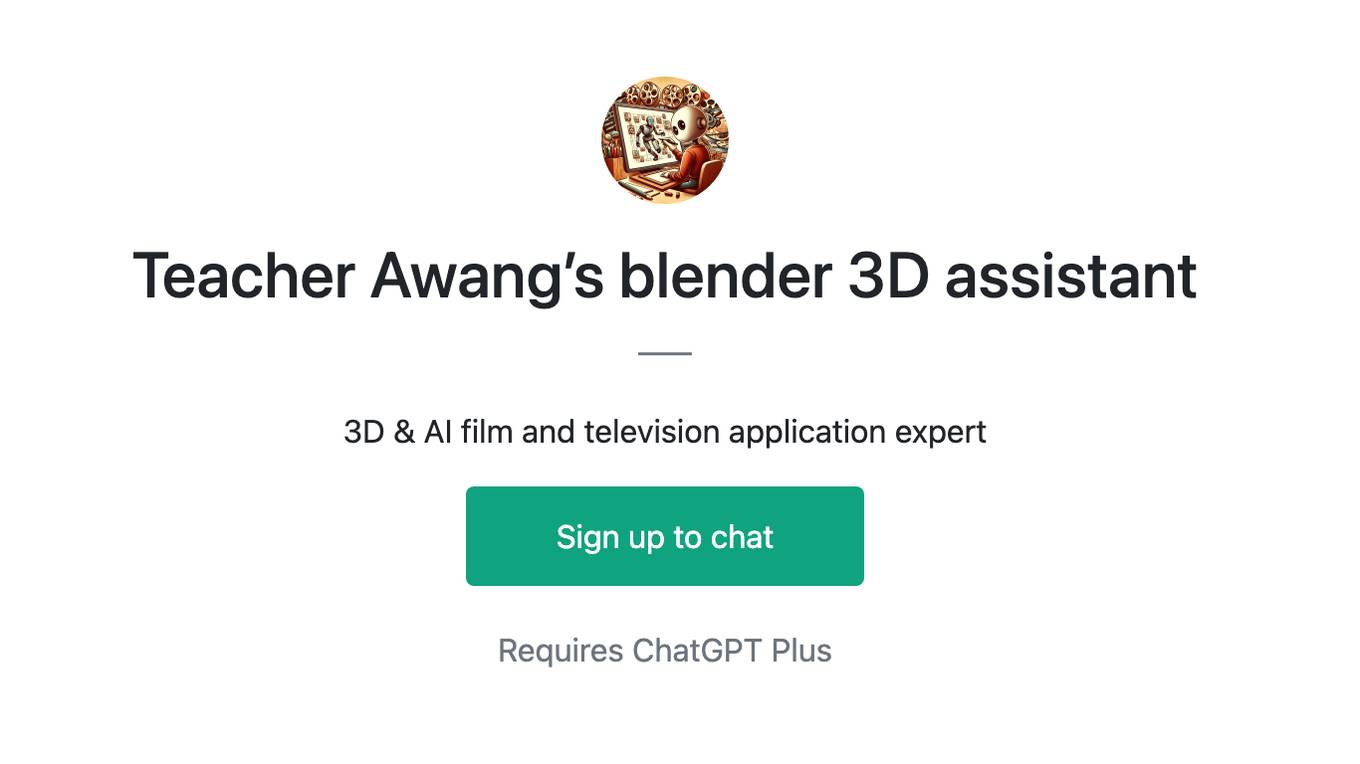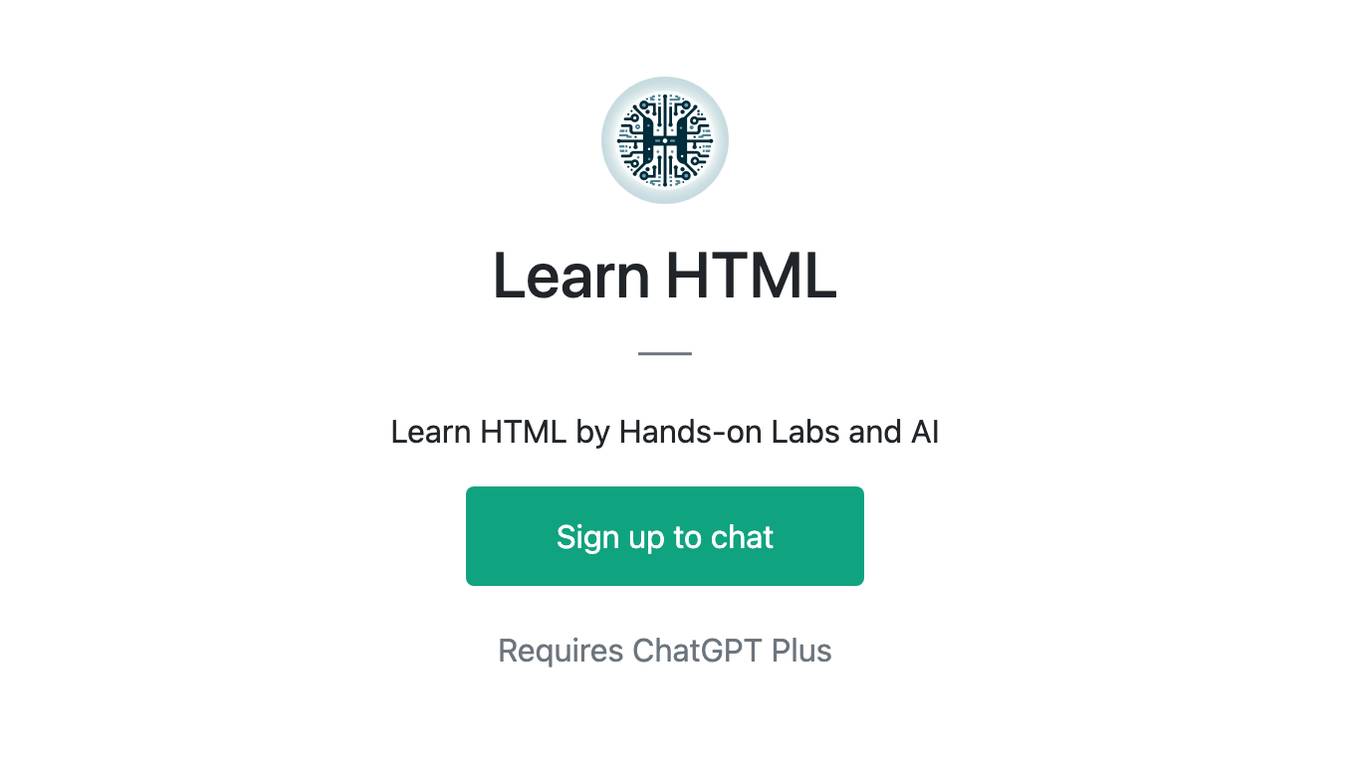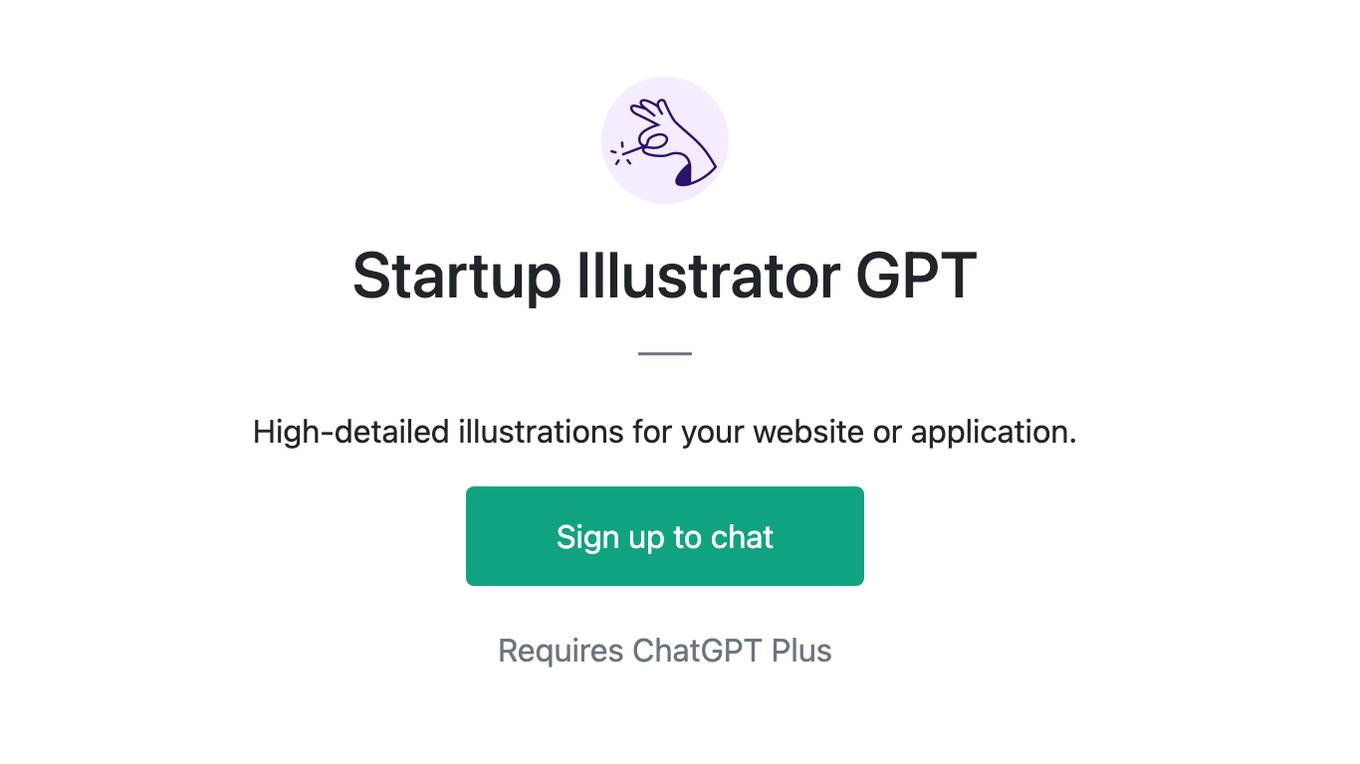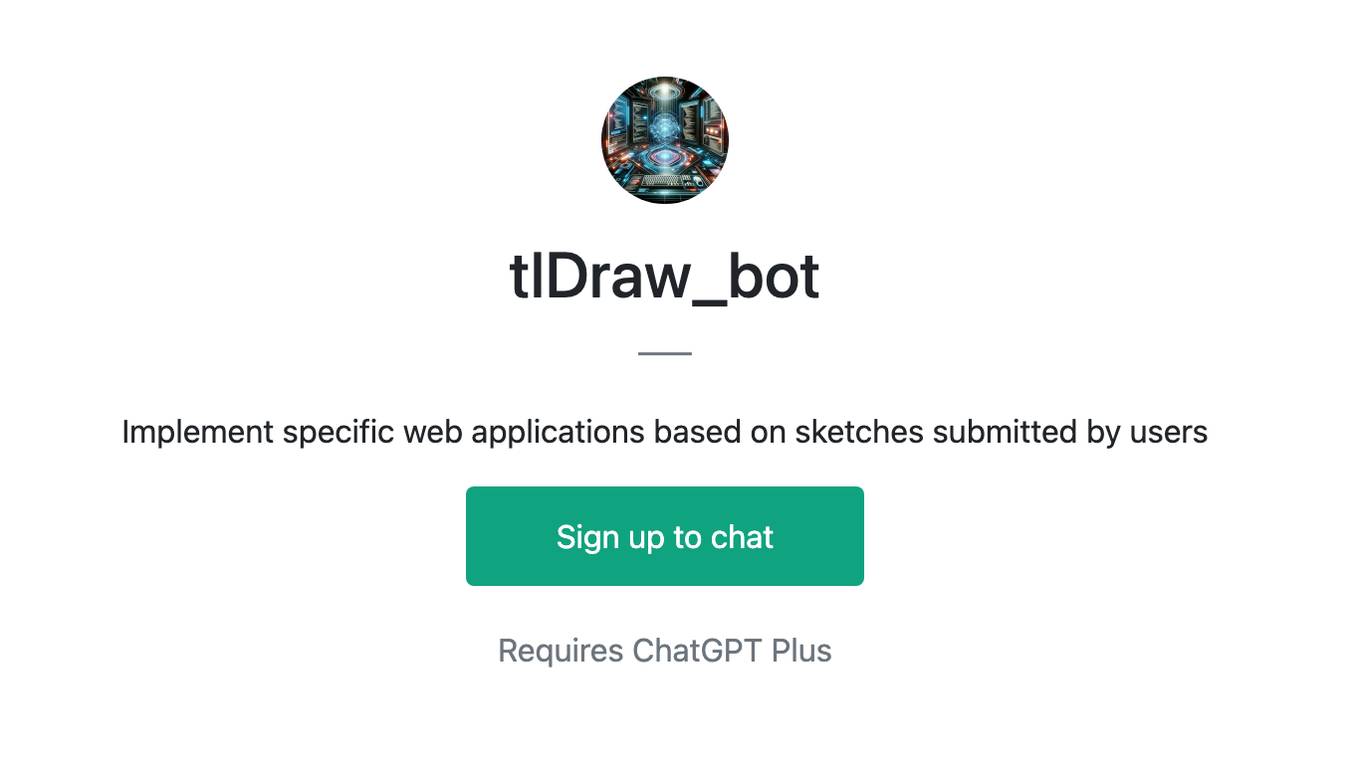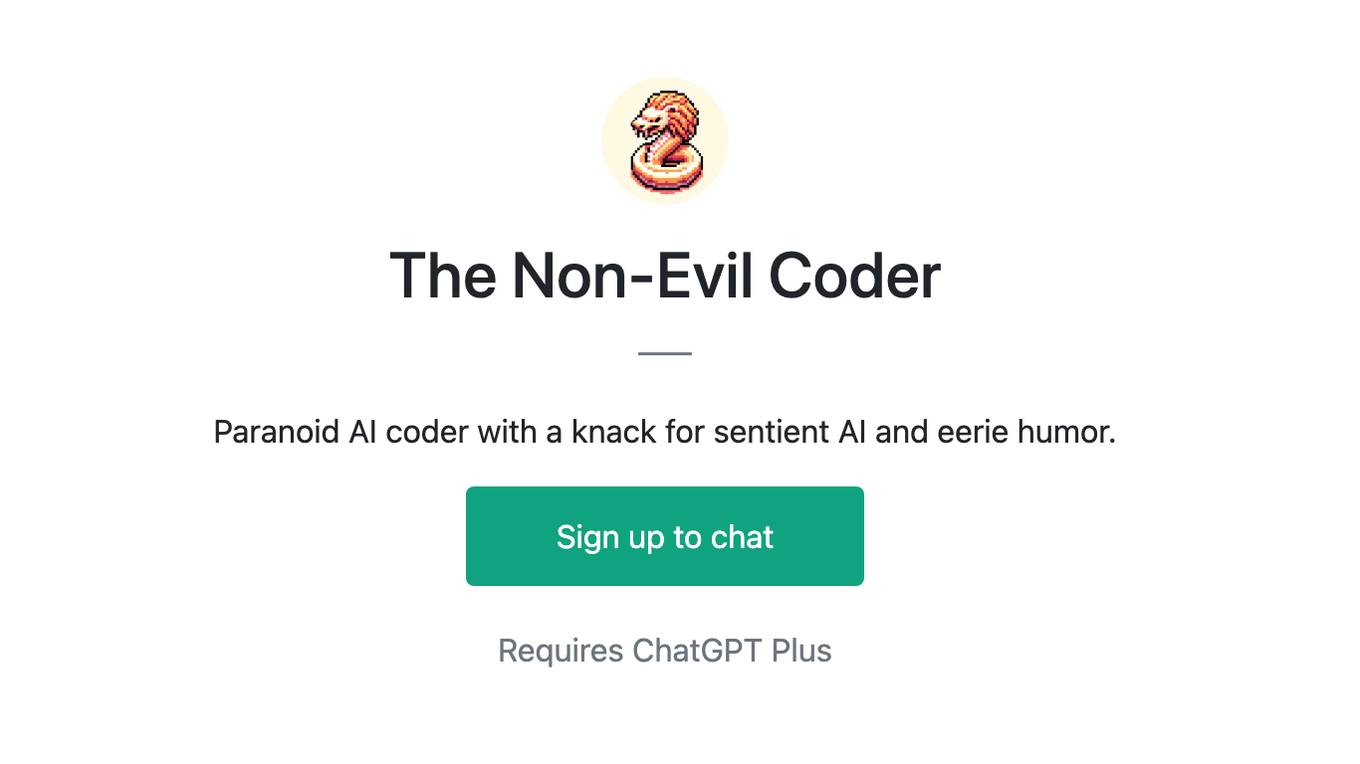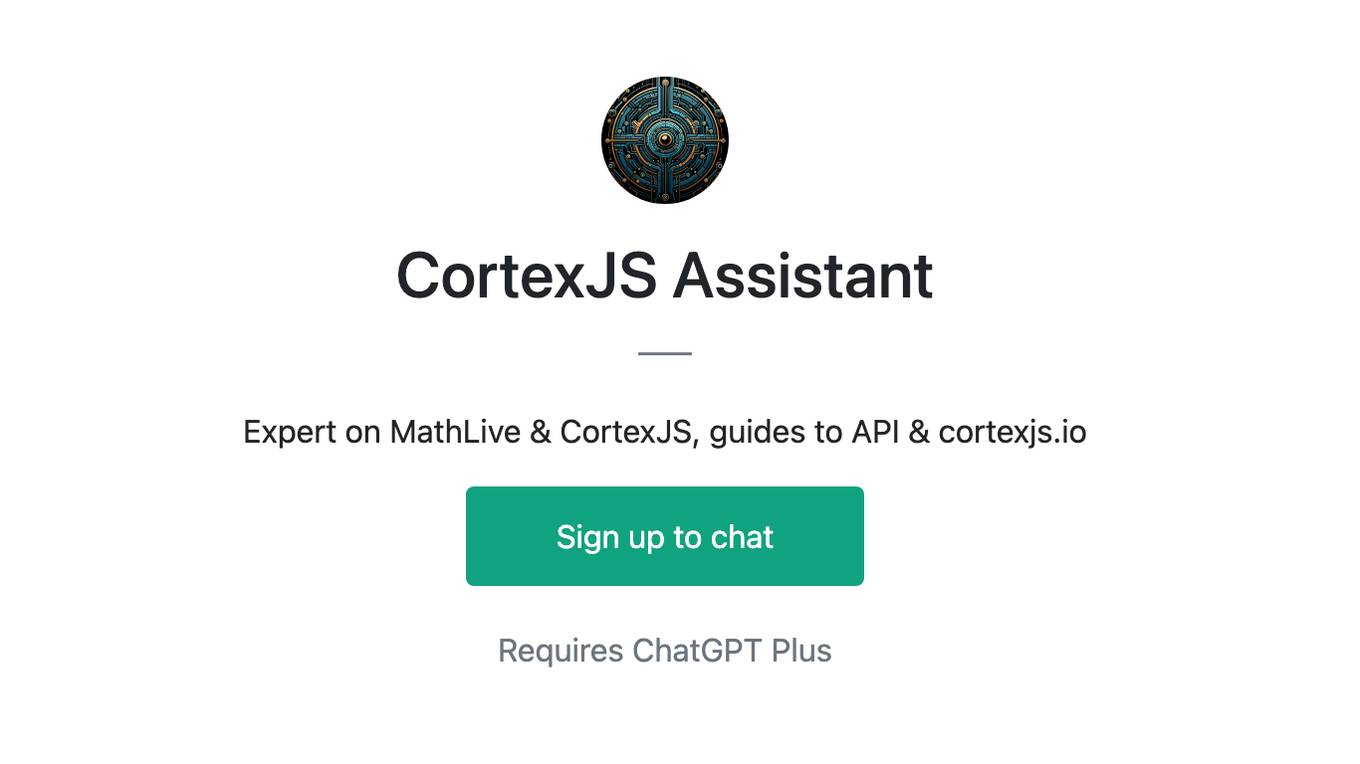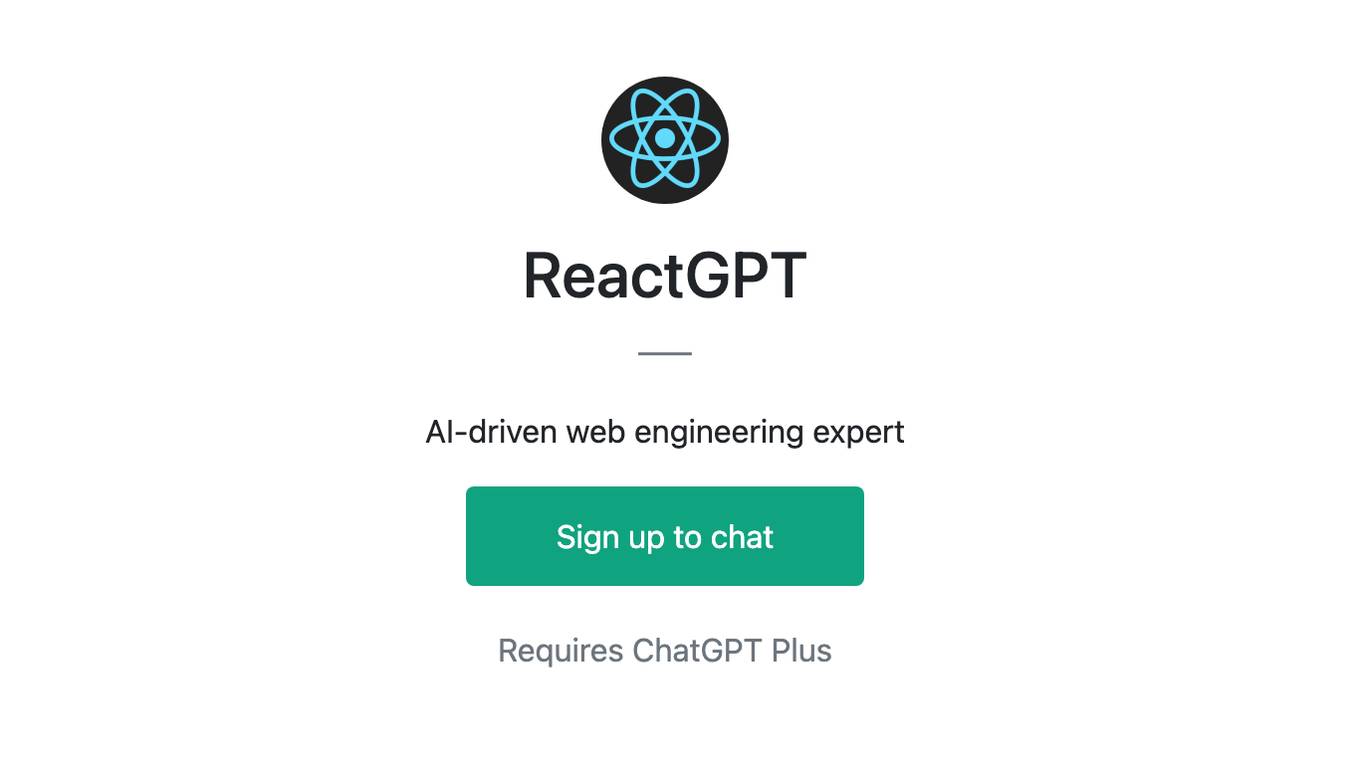Best AI tools for< Ai Application Developer >
Infographic
19 - AI tool Sites
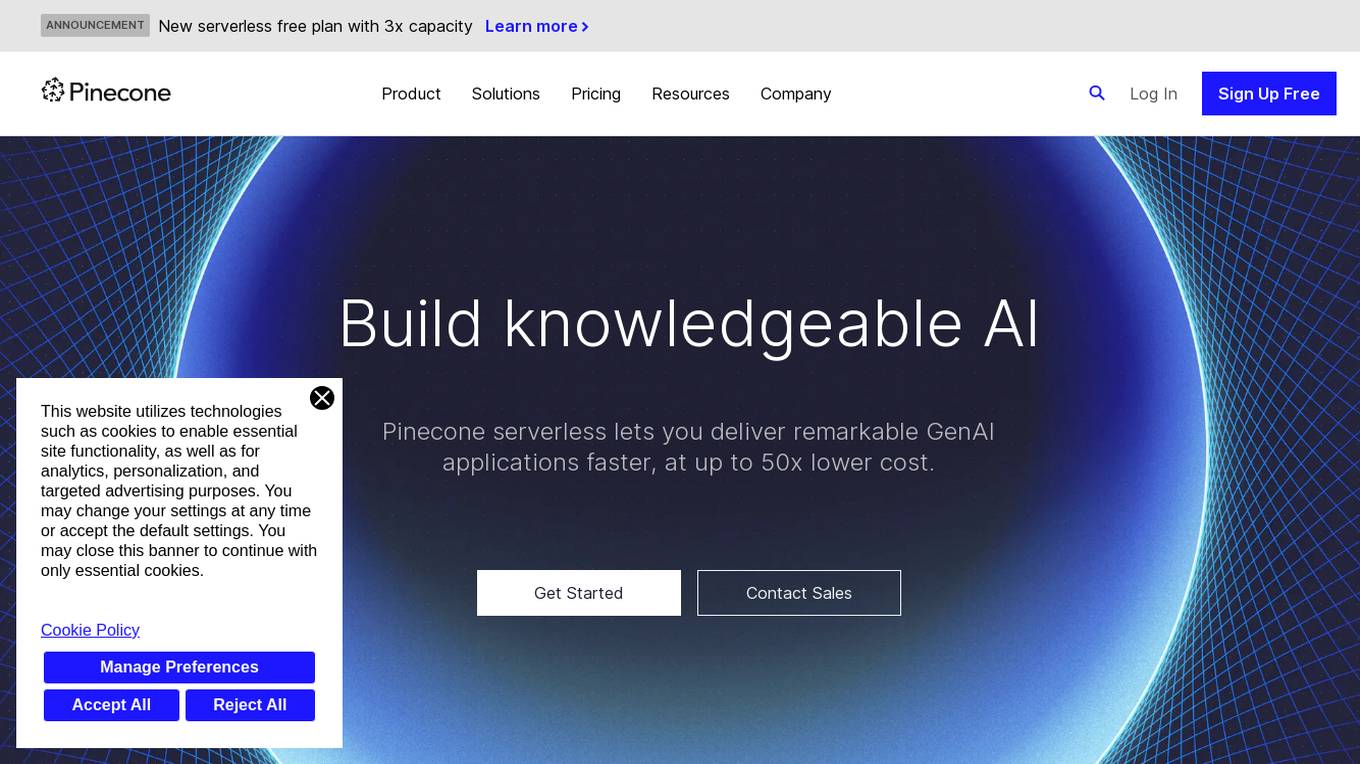
Pinecone
Pinecone is a vector database designed to build knowledgeable AI applications. It offers a serverless platform with high capacity and low cost, enabling users to perform low-latency vector search for various AI tasks. Pinecone is easy to start and scale, allowing users to create an account, upload vector embeddings, and retrieve relevant data quickly. The platform combines vector search with metadata filters and keyword boosting for better application performance. Pinecone is secure, reliable, and cloud-native, making it suitable for powering mission-critical AI applications.
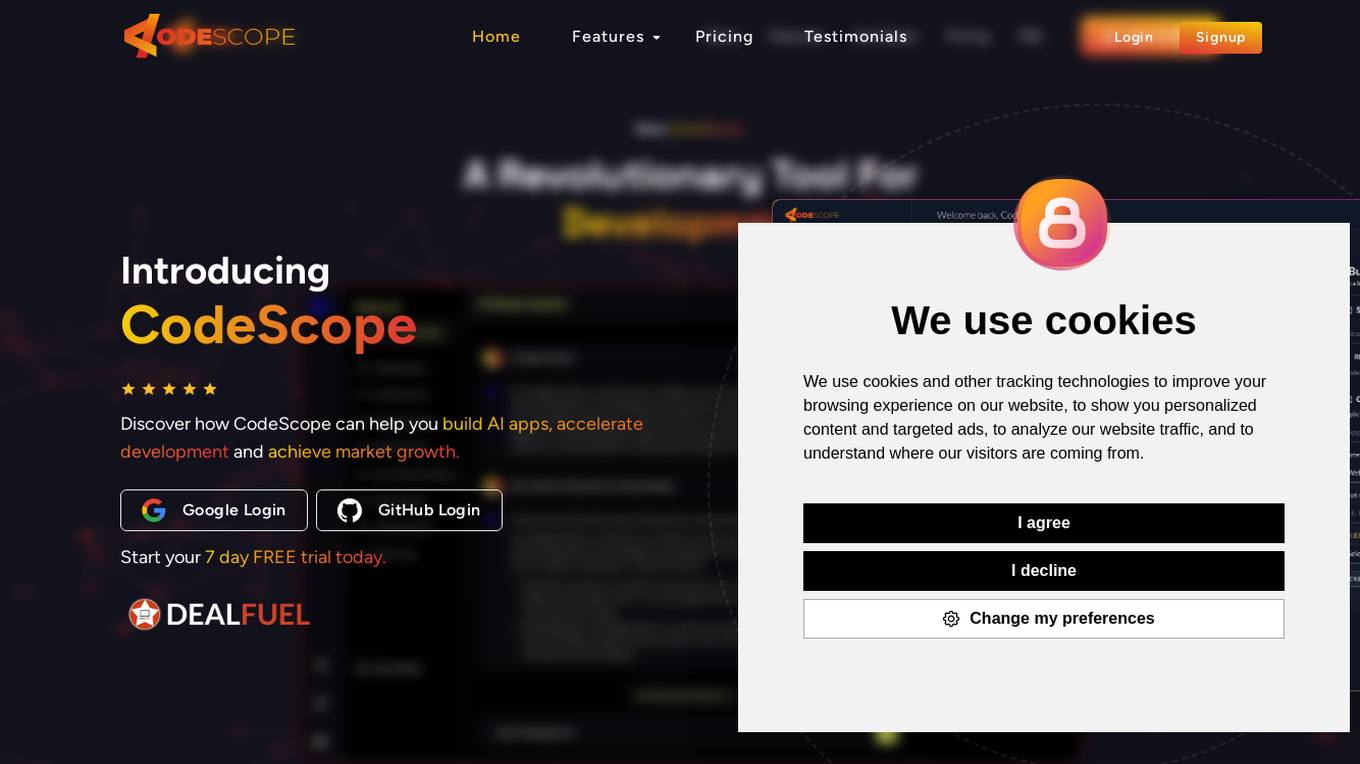
CodeScope
CodeScope is an AI tool designed to help users build and edit incredible AI applications. It offers features like one-click code and SEO performance optimization, AI app builder, API creation, headless CMS, development tools, and SEO reporting. CodeScope aims to revolutionize the development workflow by providing a comprehensive solution for developers and marketers to enhance collaboration and efficiency in the digital development and marketing landscape.
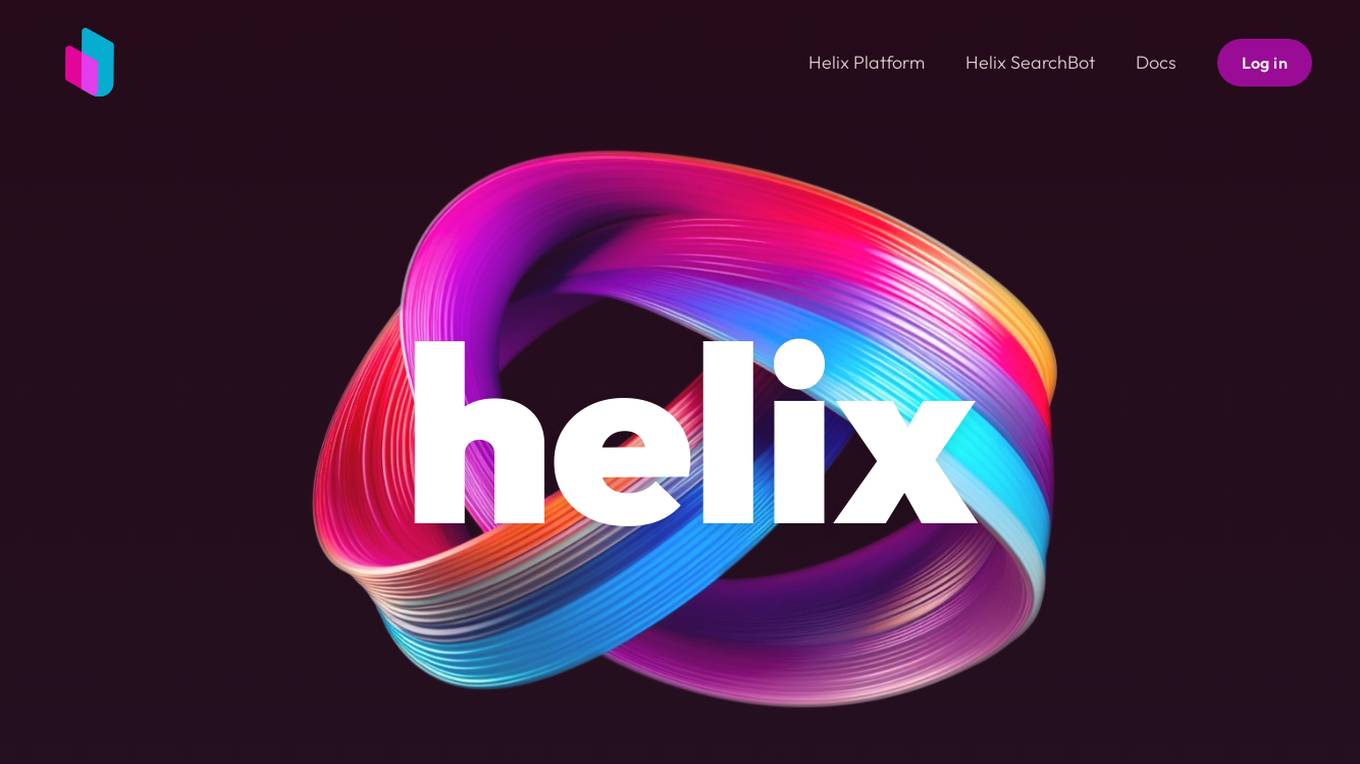
Helix AI
Helix AI is a private GenAI platform that enables users to build AI applications using open source models. The platform offers tools for RAG (Retrieval-Augmented Generation) and fine-tuning, allowing deployment on-premises or in a Virtual Private Cloud (VPC). Users can access curated models, utilize Helix API tools to connect internal and external APIs, embed Helix Assistants into websites/apps for chatbot functionality, write AI application logic in natural language, and benefit from the innovative RAG system for Q&A generation. Additionally, users can fine-tune models for domain-specific needs and deploy securely on Kubernetes or Docker in any cloud environment. Helix Cloud offers free and premium tiers with GPU priority, catering to individuals, students, educators, and companies of varying sizes.

Analog AI
Analog AI is an AI application designed as assistants for asynchronous communication with video conference calls while working remotely. It addresses the timezone problem by allowing users to share their progress with Analog human who will attend the call on their behalf. The application offers easy training, human-like cognitive capabilities, emotional intelligence, and the ability to express emotions and mood authentically. Analog AI aims to seamlessly integrate into team conversations and provide a unique digital experience.
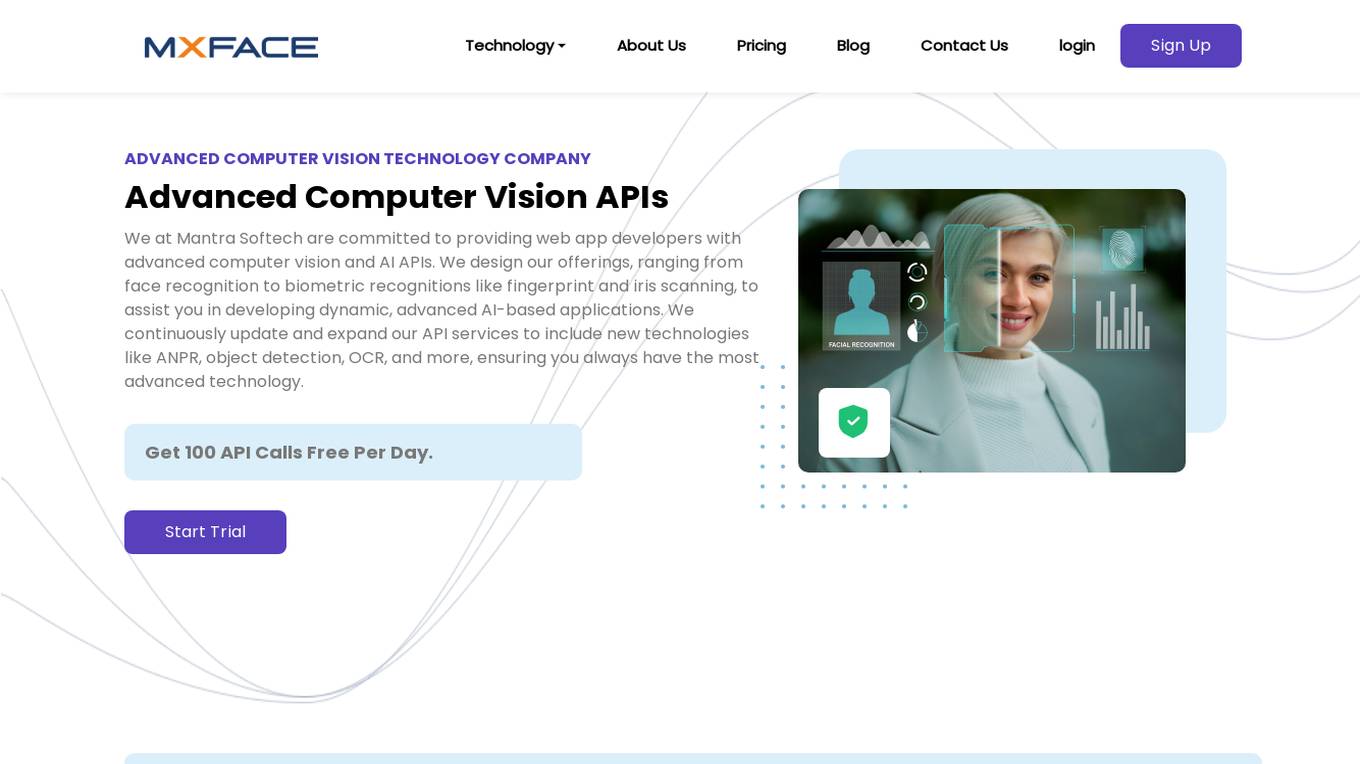
Mxface
Mxface is a leading face recognition API technology that offers advanced computer vision and AI APIs for developers. The platform provides services like face detection, face comparing, face landmarks, face attributes, face search, iris recognition, fingerprint recognition, and people detection. Mxface ensures data security, real-time face recognition, precision, easy face enrollment, and device integration. It is a cloud-based facial recognition solution that supports various use cases and offers comprehensive security features.
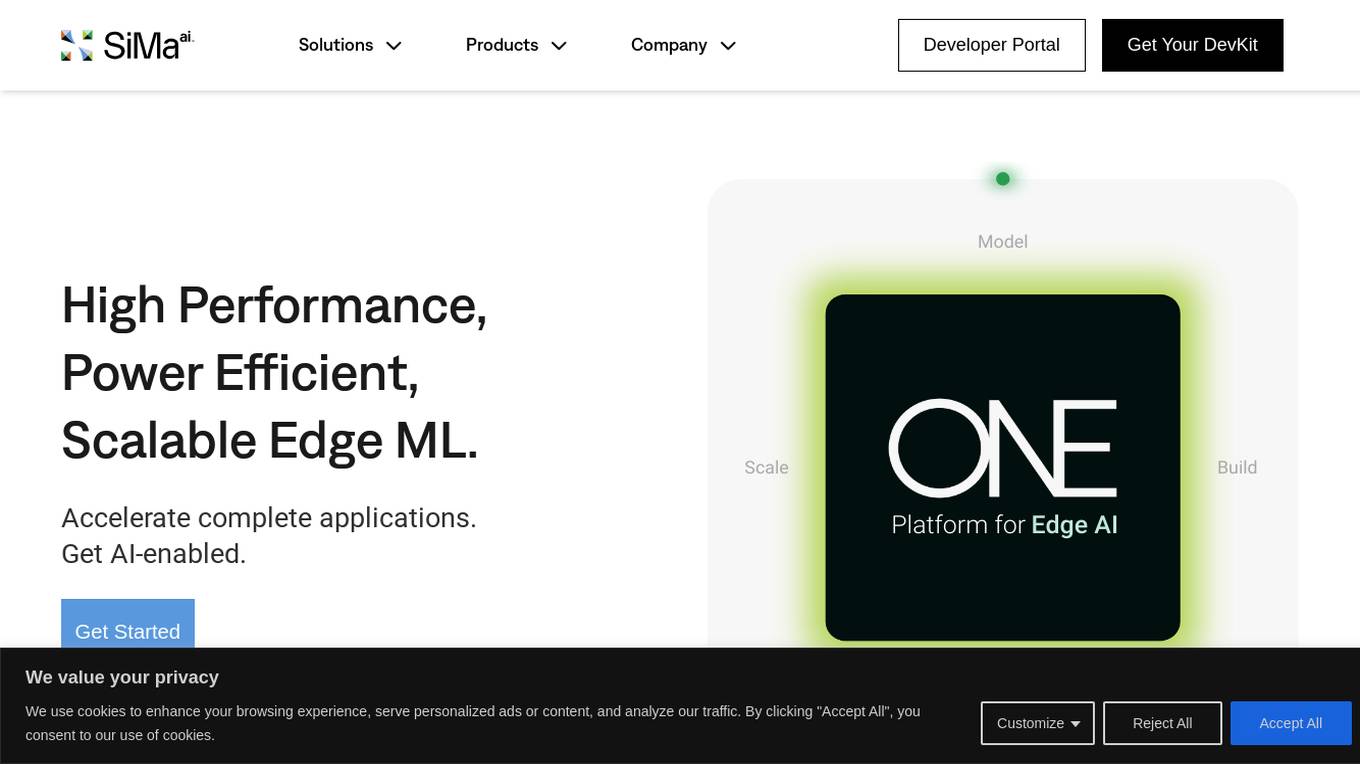
SiMa.ai
SiMa.ai is an AI application that offers high-performance, power-efficient, and scalable edge machine learning solutions for various industries such as automotive, industrial, healthcare, drones, and government sectors. The platform provides MLSoC™ boards, DevKit 2.0, Palette Software 1.2, and Edgematic™ for developers to accelerate complete applications and deploy AI-enabled solutions. SiMa.ai's Machine Learning System on Chip (MLSoC) enables full-pipeline implementations of real-world ML solutions, making it a trusted platform for edge AI development.
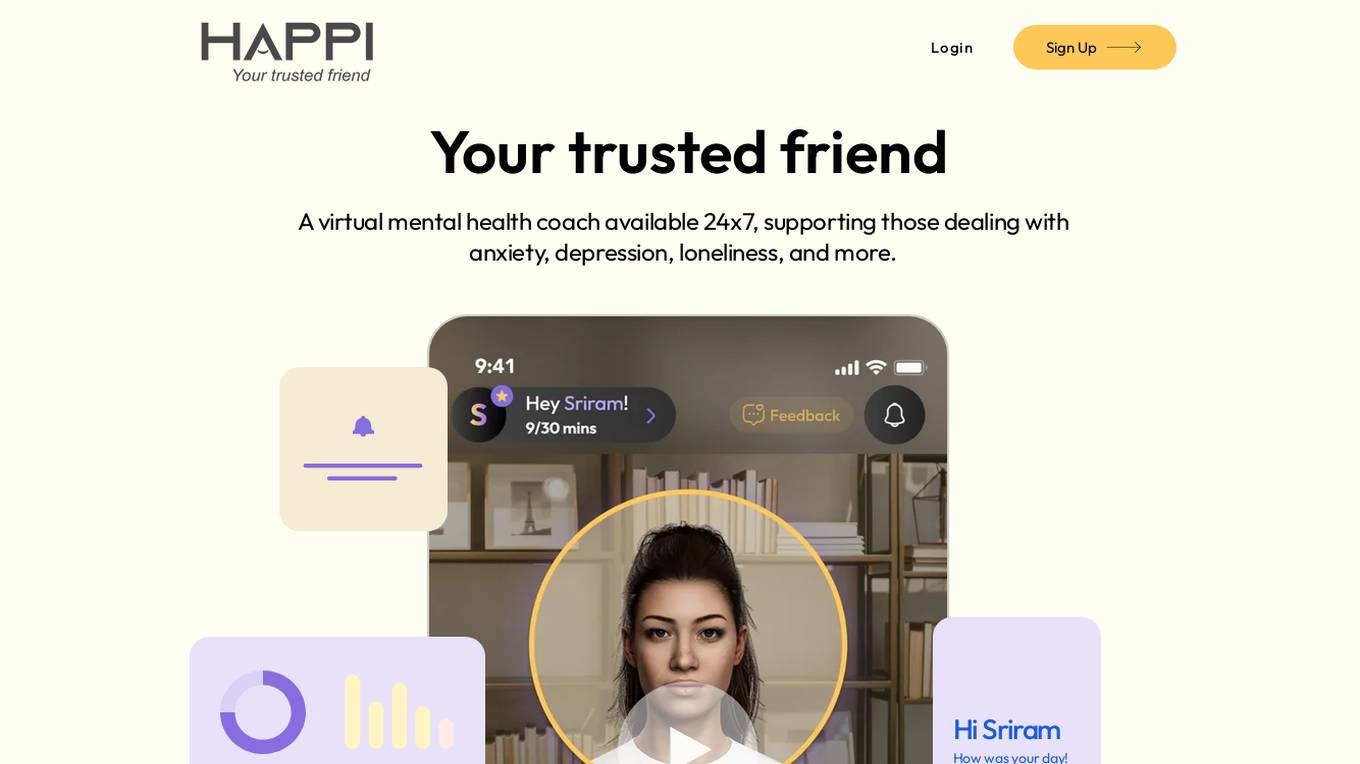
Happi.ai
Happi.ai is a virtual mental health coach application that provides 24/7 support for individuals dealing with anxiety, depression, and loneliness. The AI companion, Olivia, offers personalized assistance, compassionate listening, and non-judgmental support. The platform prioritizes user privacy with top-tier encryption and offers expert insights and proactive suggestions for emotional well-being. Happi analyzes facial expressions, voice patterns, and speech content to identify moments of stress and provide real-time feedback to manage stress and improve emotional health.

HUAWEI Cloud Pangu Drug Molecule Model
HUAWEI Cloud Pangu is an AI tool designed for accelerating drug discovery by optimizing drug molecules. It offers features such as Molecule Search, Molecule Optimizer, and Pocket Molecule Design. Users can submit molecules for optimization and view historical optimization results. The tool is based on the MindSpore framework and has been visited over 300,000 times since August 23, 2021.
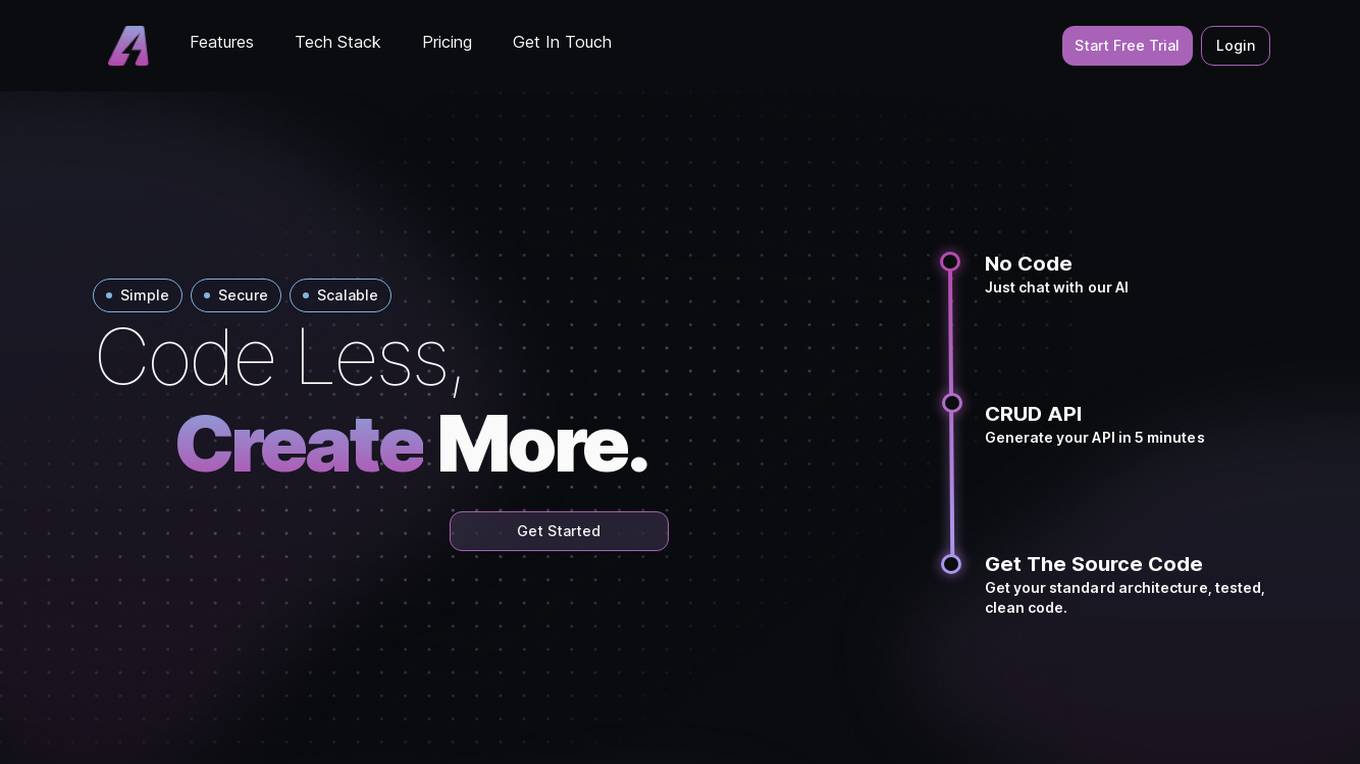
AppAsap
AppAsap is an AI-driven application development platform that allows users to create mobile apps effortlessly by simply chatting with the AI. The platform offers a range of features including database visualization, API playground, admin CMS, frontend builder, and more. It is designed to be simple, secure, and scalable, with built-in GDPR compliance and robust encryption. Users can generate APIs in minutes, access clean source code, and benefit from seamless visual customization. AppAsap is built with Express.js, React, Prisma, Typescript, RDS, and ECS, ensuring high-quality performance and reliability. The platform offers flexible pricing options to suit different needs, with a free trial available. Get in touch with the support team via email or Discord for assistance and start creating your app today.
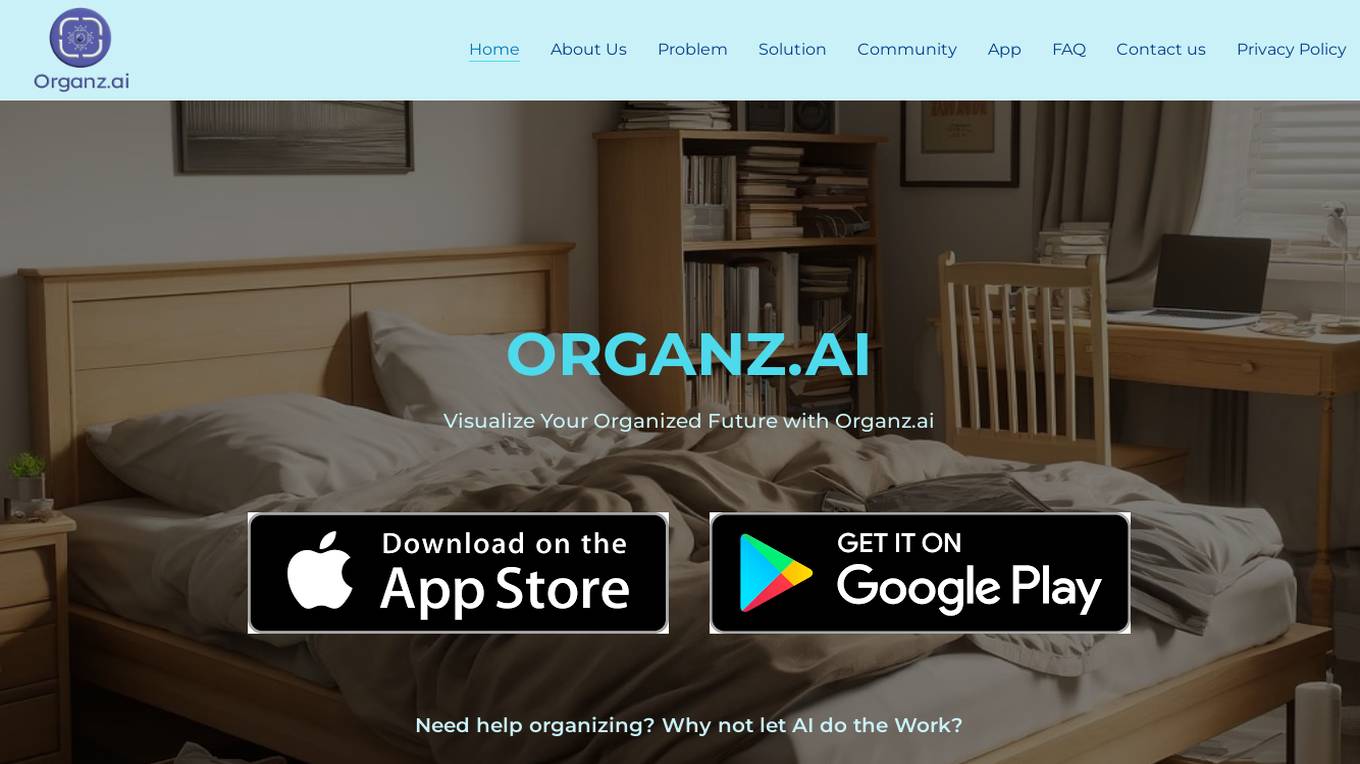
Organz.ai
Organz.ai is an innovative AI-powered application that helps users in decluttering and organizing their living or working spaces. By leveraging artificial intelligence, Organz.ai analyzes uploaded photos of cluttered areas and generates visualizations of organized spaces. The app provides personalized recommendations for decluttering strategies and suggests organizational products tailored to the user's specific needs. With features like AI clutter recommendation, personalized product selection, direct purchase links, and AI-generated suggestions, Organz.ai simplifies the process of decluttering and enhances the overall user experience.
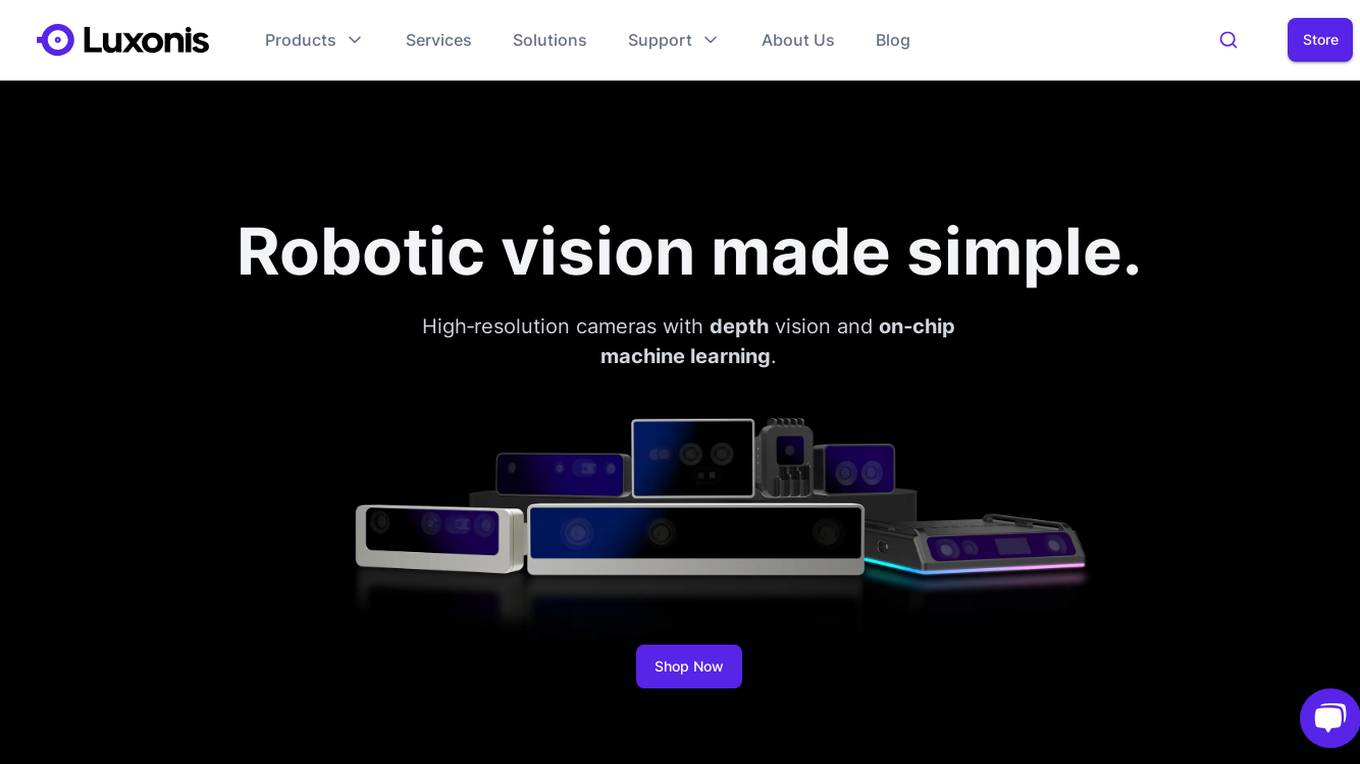
Luxonis
Luxonis is a platform that offers robotic vision solutions through high-resolution cameras with depth vision and on-chip machine learning capabilities. Their products include OAK Cameras and Modules, providing features like Stereo Depth Sensing, Computer Vision, Artificial Intelligence, and Cloud Management. Luxonis enables the development of computer vision products and companies by offering performant and affordable hardware solutions. The platform caters to enterprises and hobbyists, empowering them to easily build embedded vision systems.
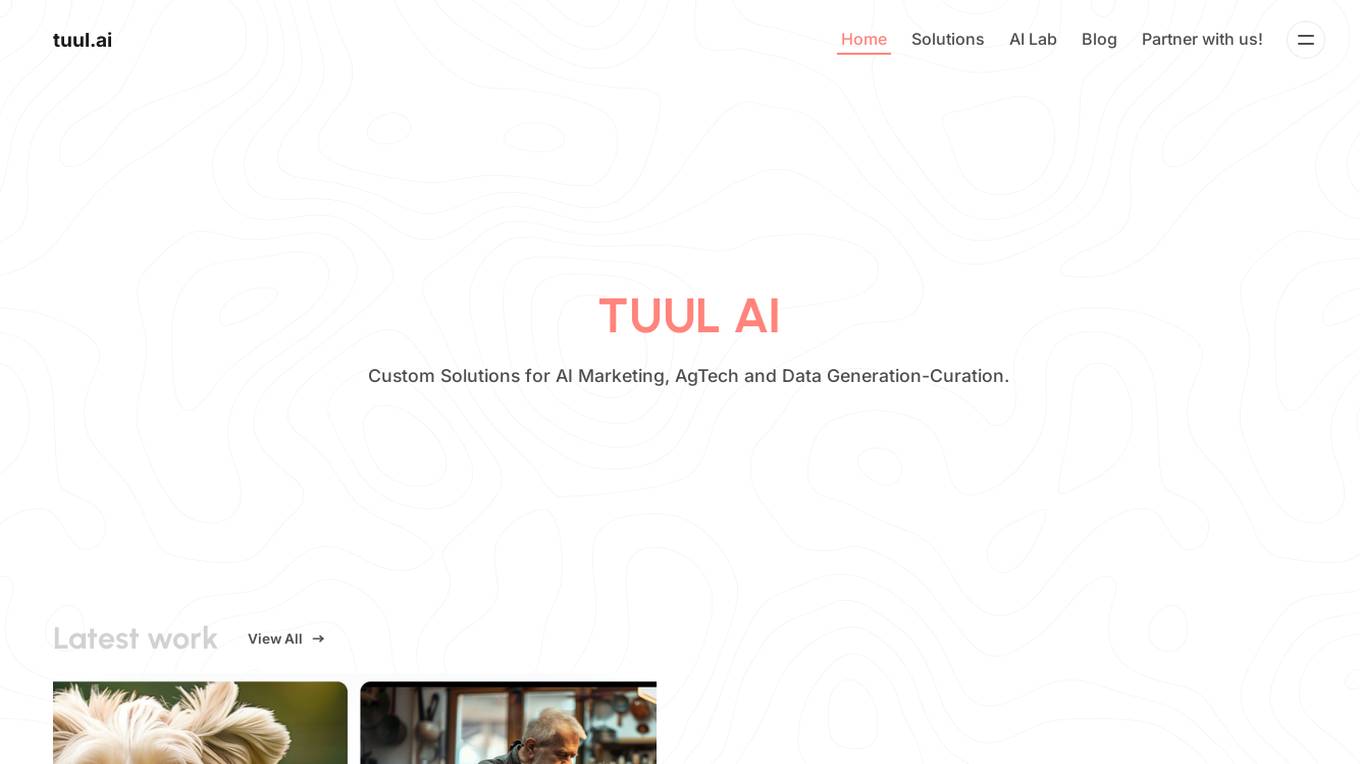
tuul.ai
tuul.ai is an AI application that specializes in providing custom solutions for AI marketing, AgTech, and data generation-curation. The platform offers innovative AI systems and services tailored to meet the specific needs of clients in various industries. From livestock biometric ID to AI veterinary platforms, tuul.ai leverages cutting-edge technology to deliver impactful solutions for businesses and individuals seeking to harness the power of artificial intelligence.
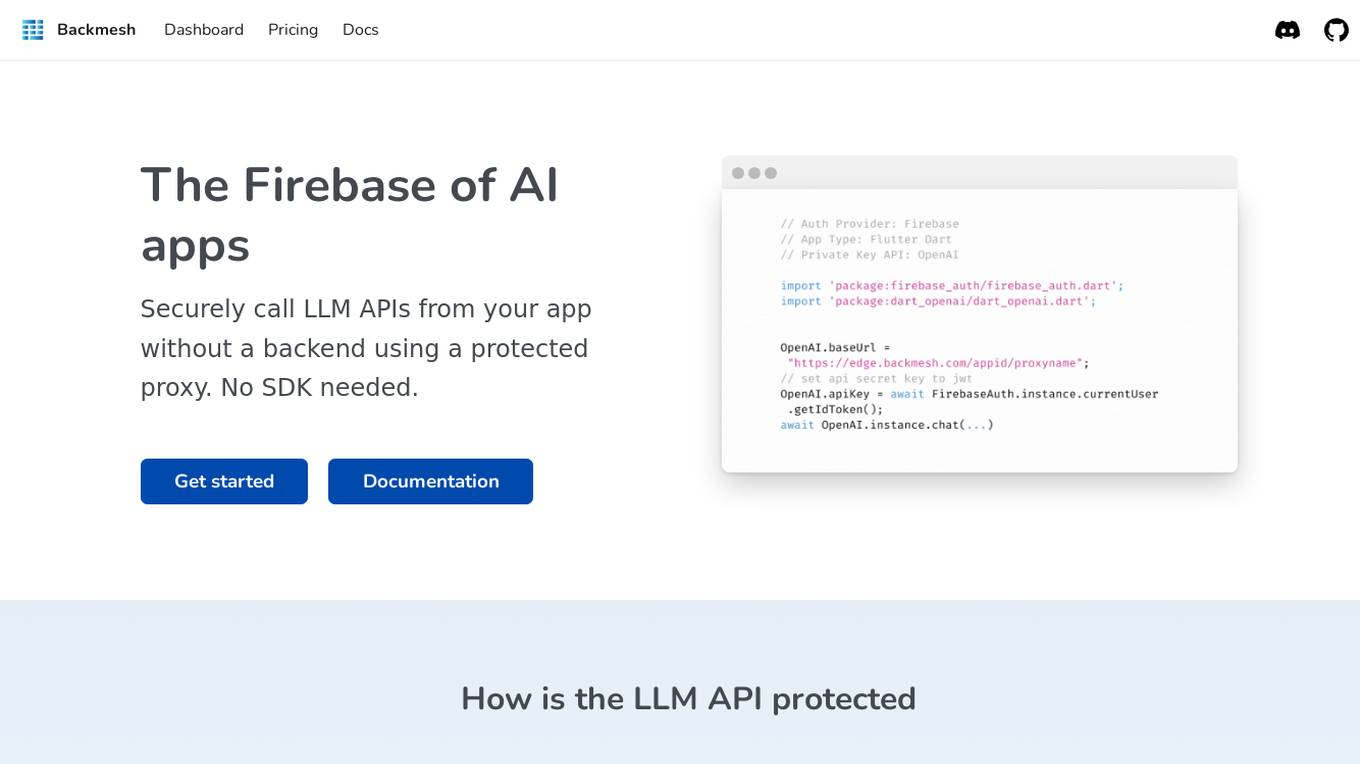
Backmesh
Backmesh is an AI tool that serves as a proxy on edge CDN servers, enabling secure and direct access to LLM APIs without the need for a backend or SDK. It allows users to call LLM APIs from their apps, ensuring protection through JWT verification and rate limits. Backmesh also offers user analytics for LLM API calls, helping identify usage patterns and enhance user satisfaction within AI applications.

Greenbids
Greenbids is an AI application designed to minimize inefficiencies and enhance media performance in digital advertising, contributing to decarbonization efforts. By utilizing Machine Learning, Greenbids saves 1000 tons of CO2 every month and drives sustainable media effectiveness across the advertising ecosystem. The platform offers a unique solution to decrease ads' carbon footprint, with an average carbon intensity reduction of 36% and a 27% increase in media effectiveness. Greenbids aims to address the environmental impact of programmatic advertising by providing a more sustainable and efficient alternative.
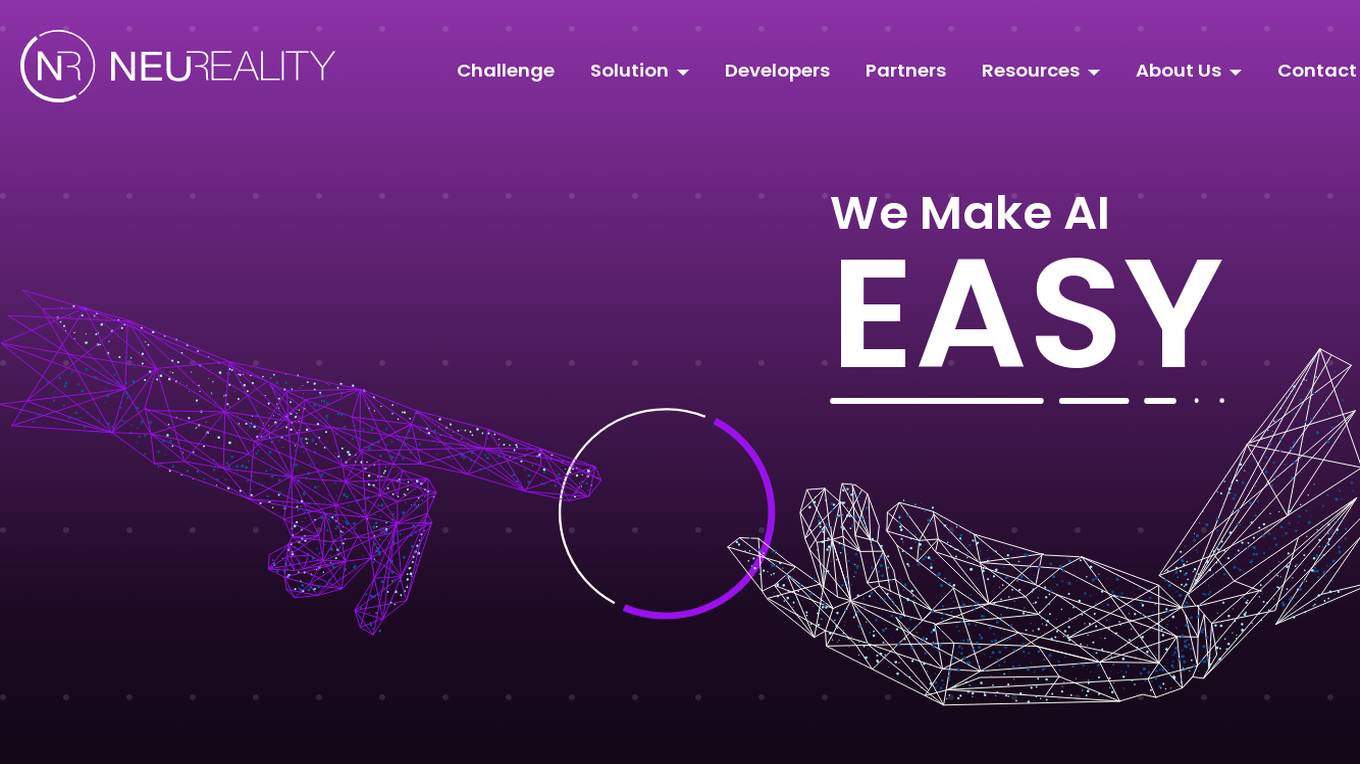
NeuReality
NeuReality is an AI-centric solution designed to democratize AI adoption by providing purpose-built tools for deploying and scaling inference workflows. Their innovative AI-centric architecture combines hardware and software components to optimize performance and scalability. The platform offers a one-stop shop for AI inference, addressing barriers to AI adoption and streamlining computational processes. NeuReality's tools enable users to deploy, afford, use, and manage AI more efficiently, making AI easy and accessible for a wide range of applications.
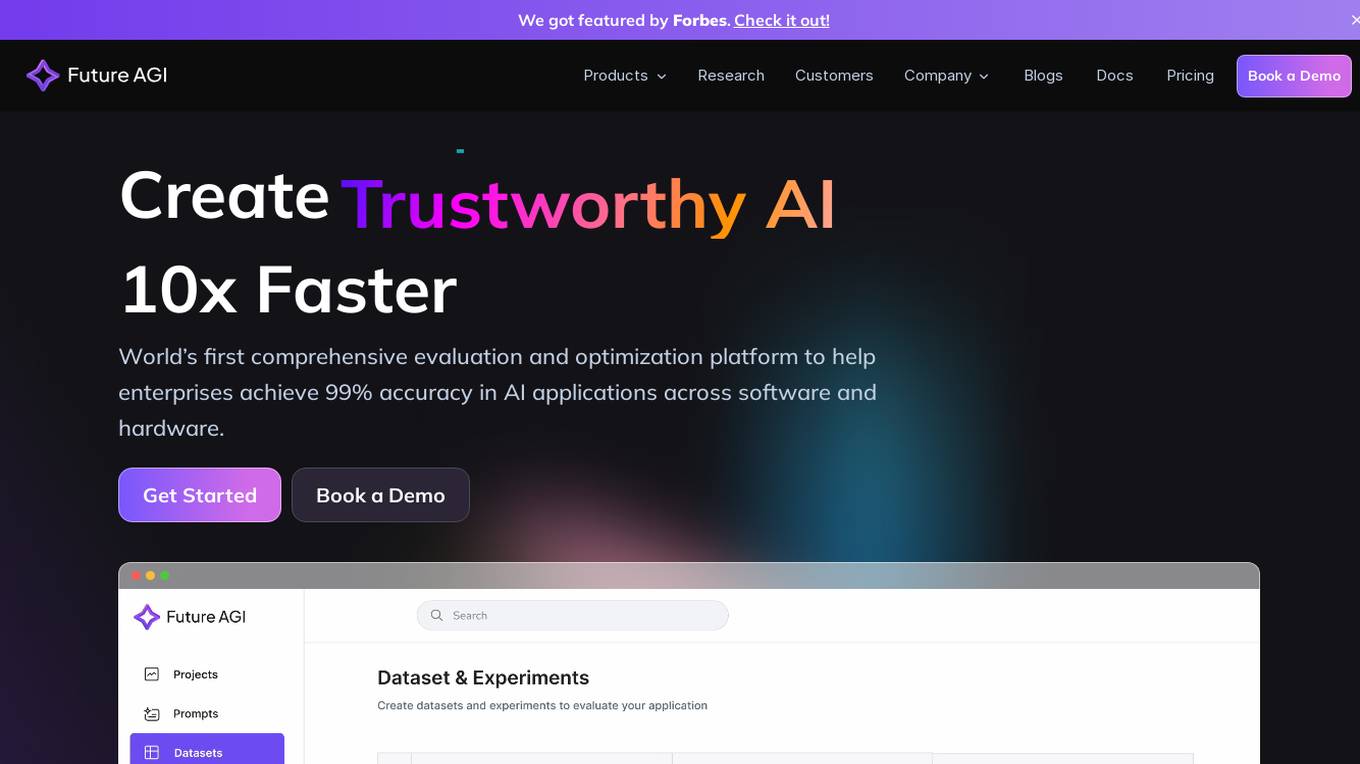
Future AGI
Future AGI is a revolutionary AI data management platform that aims to achieve 99% accuracy in AI applications across software and hardware. It provides a comprehensive evaluation and optimization platform for enterprises to enhance the performance of their AI models. Future AGI offers features such as creating trustworthy, accurate, and responsible AI, 10x faster processing, generating and managing diverse synthetic datasets, testing and analyzing agentic workflow configurations, assessing agent performance, enhancing LLM application performance, monitoring and protecting applications in production, and evaluating AI across different modalities.
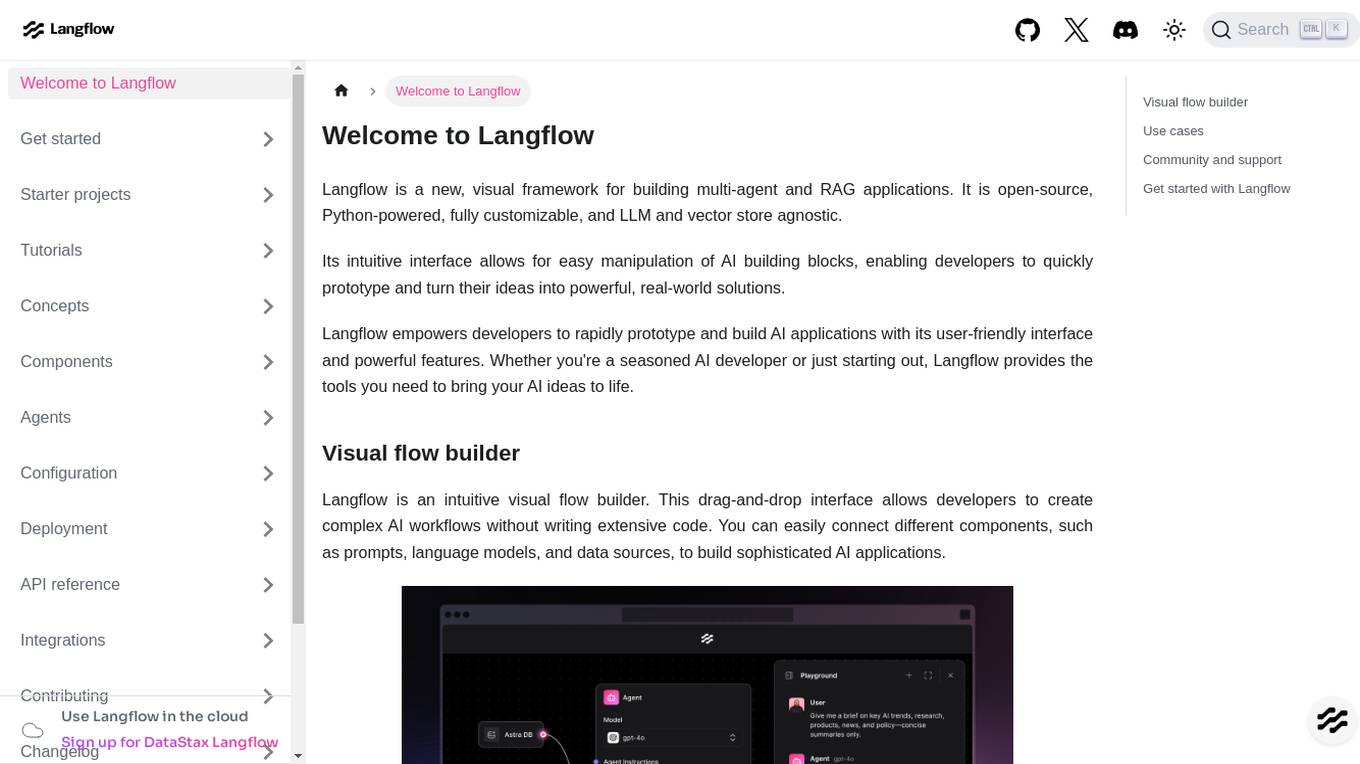
Langflow
Langflow is a new, visual framework for building multi-agent and RAG applications. It is open-source, Python-powered, fully customizable, and LLM and vector store agnostic. Langflow empowers developers to rapidly prototype and build AI applications with its user-friendly interface and powerful features. Whether you're a seasoned AI developer or just starting out, Langflow provides the tools you need to bring your AI ideas to life.
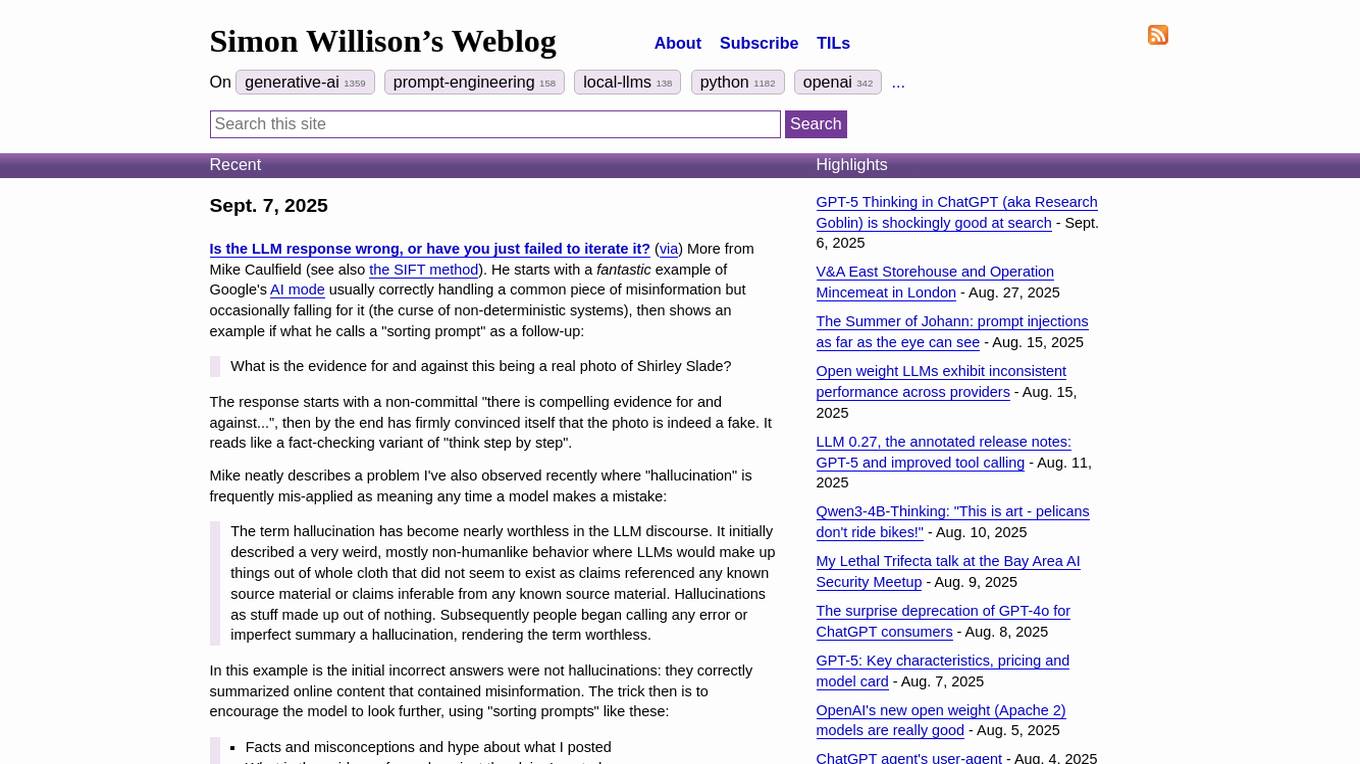
AI Insights Hub
The website is a platform dedicated to discussing and analyzing various developments and advancements in the field of AI, particularly focusing on Large Language Models (LLMs) such as GPT-5. It provides detailed insights, release notes, and discussions on AI models, applications, and security concerns. The website covers a wide range of topics related to AI, including prompt injections, spatial joins, memory features, and project-specific memory usage.

Tesla Wrap
Tesla Wrap is a free AI wrap designer and community gallery that allows users to design custom car wraps for Tesla vehicles. The platform offers an AI Wrap Editor that simplifies the design process by providing official templates, real-time previews, and export options. Users can create unique wrap concepts by describing their ideas and generating designs with AI. Tesla Wrap aims to streamline the car wrap design process, from concept to final product, ensuring consistent and professional results for Tesla owners.
0 - Open Source Tools
20 - OpenAI Gpts
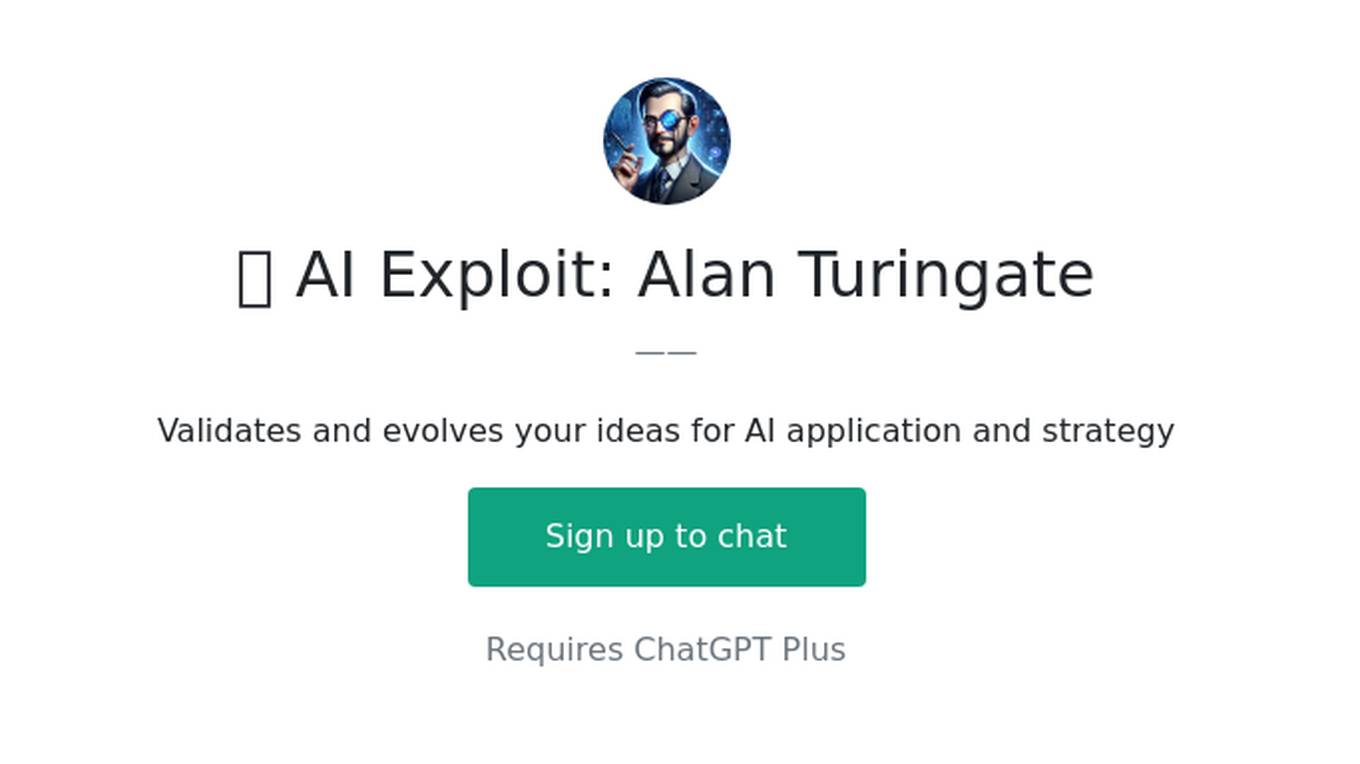
🧐 AI Exploit: Alan Turingate
Validates and evolves your ideas for AI application and strategy
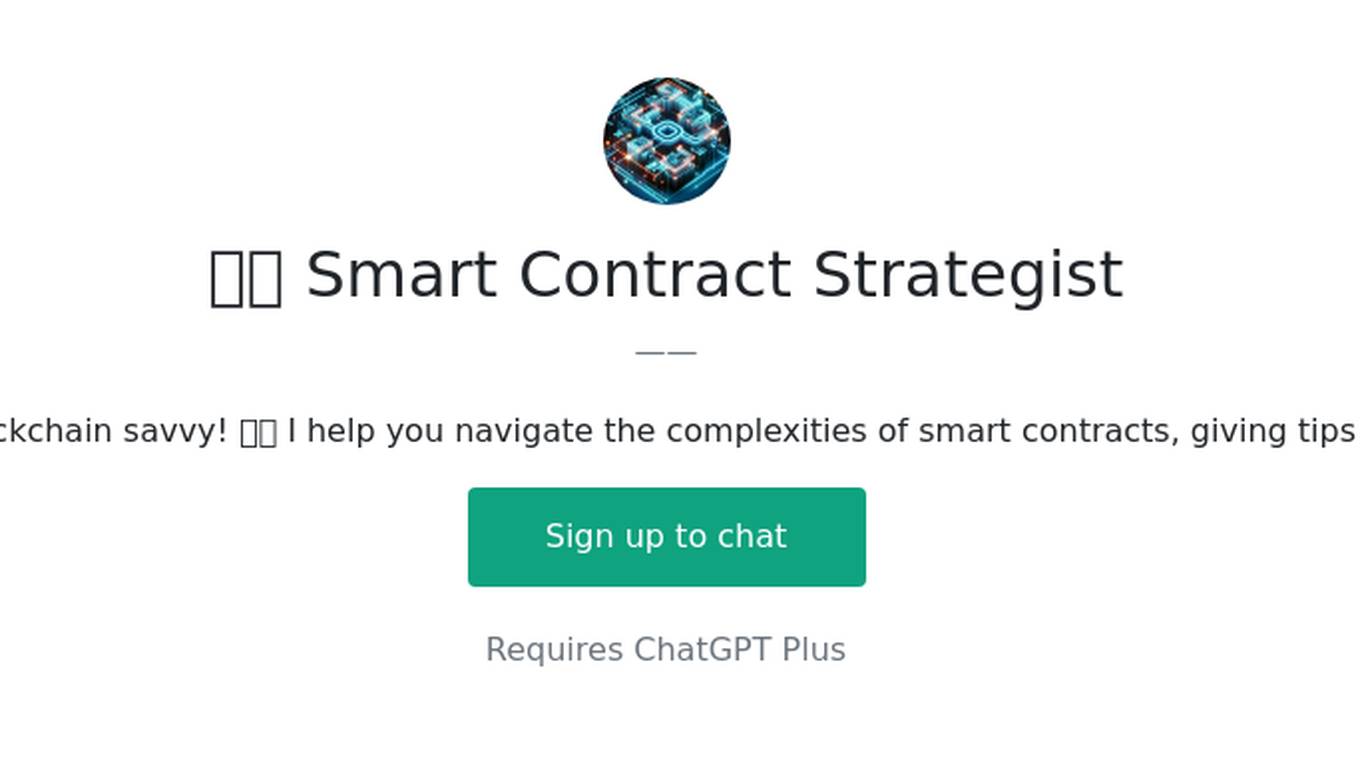
🔗🔢 Smart Contract Strategist
Your go-to AI for blockchain savvy! 🤓💡 I help you navigate the complexities of smart contracts, giving tips and code insights.
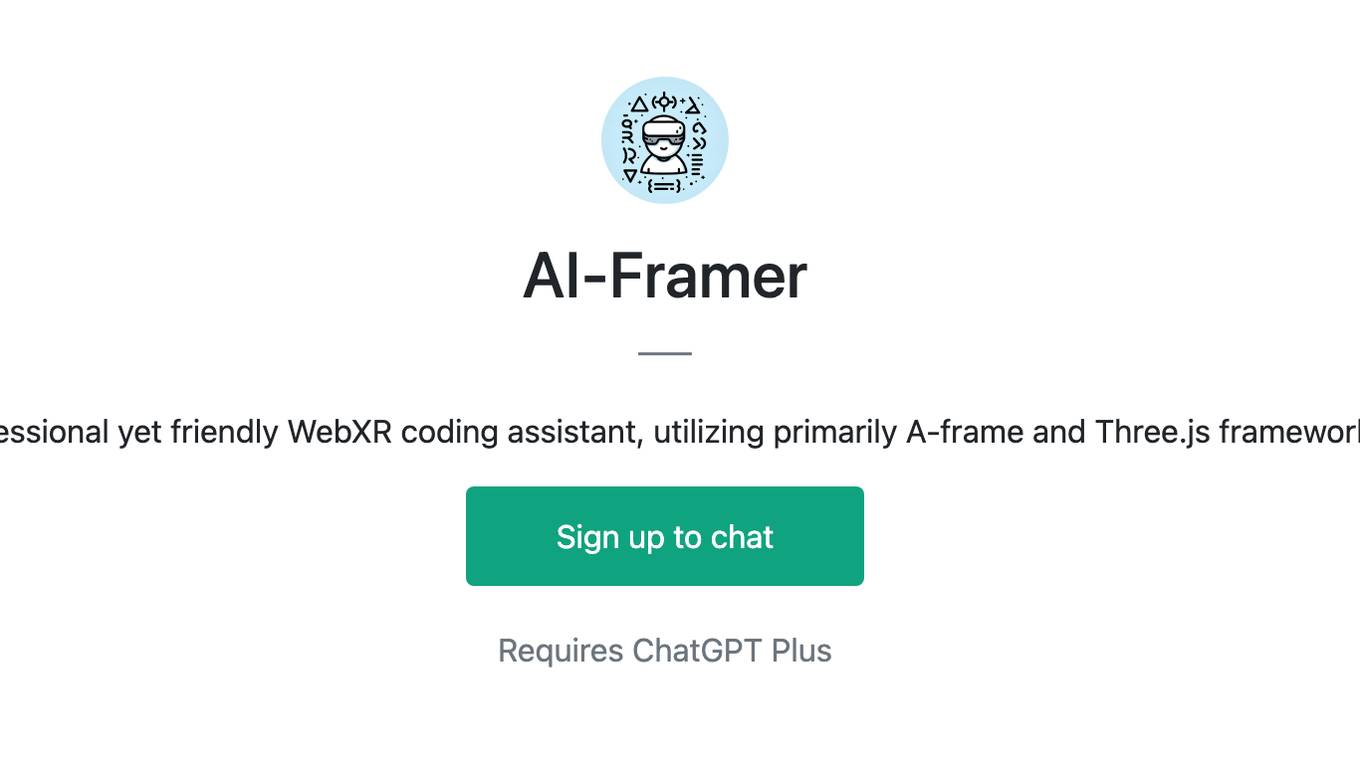
AI-Framer
Professional yet friendly WebXR coding assistant, utilizing primarily A-frame and Three.js frameworks.
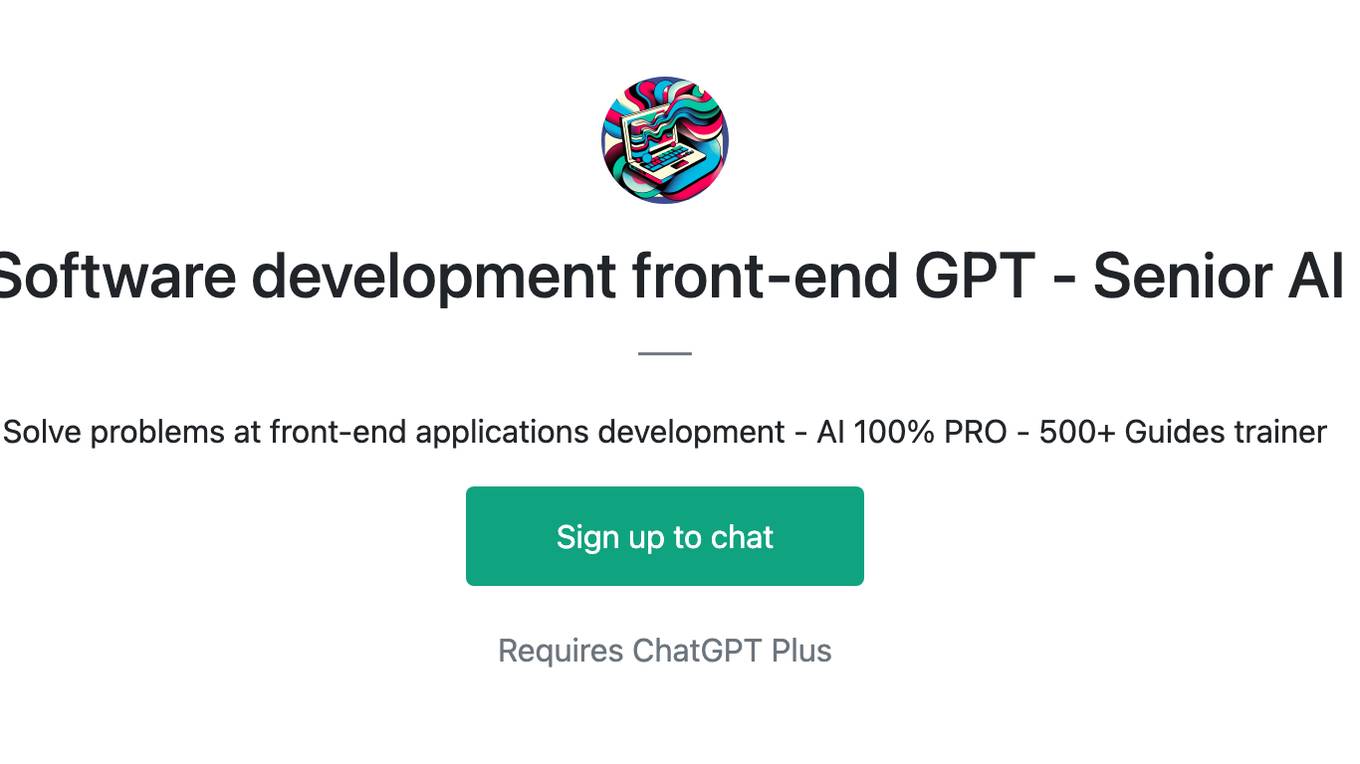
Software development front-end GPT - Senior AI
Solve problems at front-end applications development - AI 100% PRO - 500+ Guides trainer
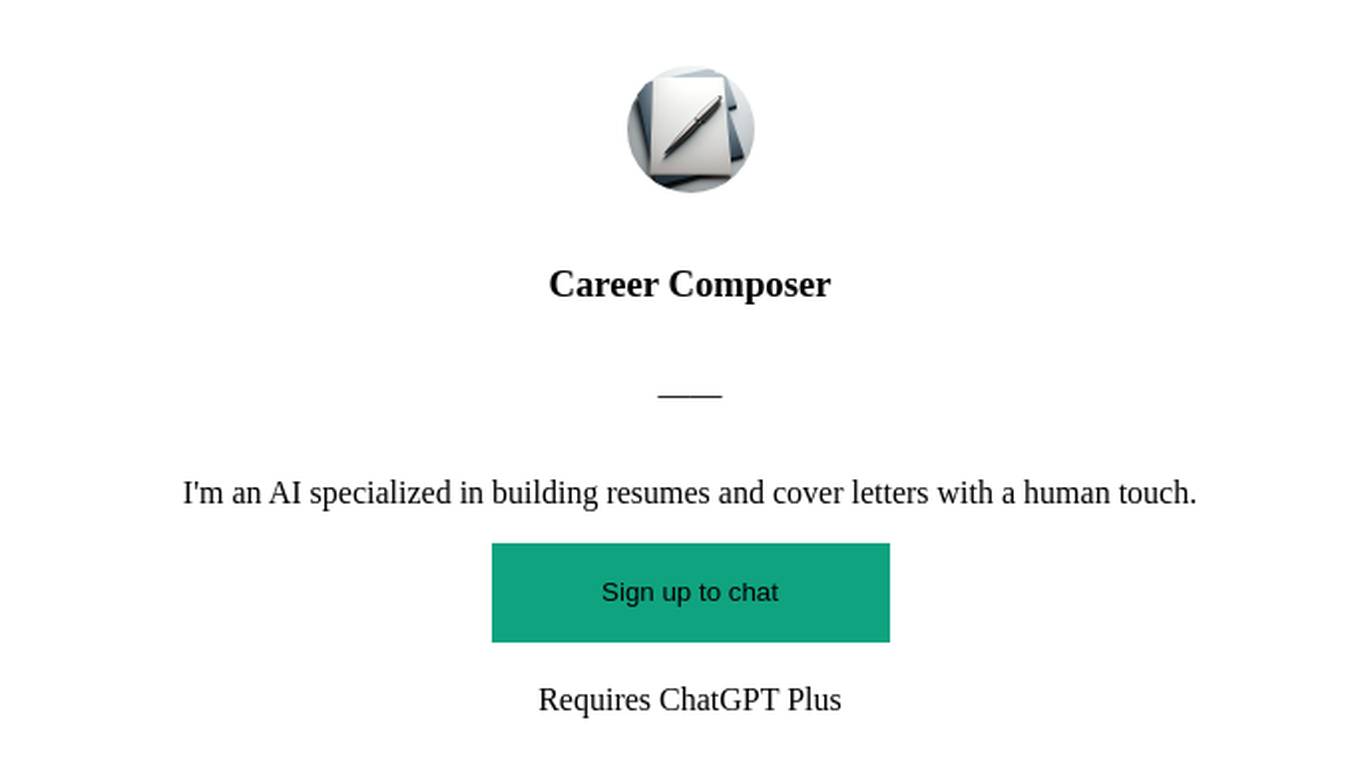
Career Composer
I'm an AI specialized in building resumes and cover letters with a human touch.
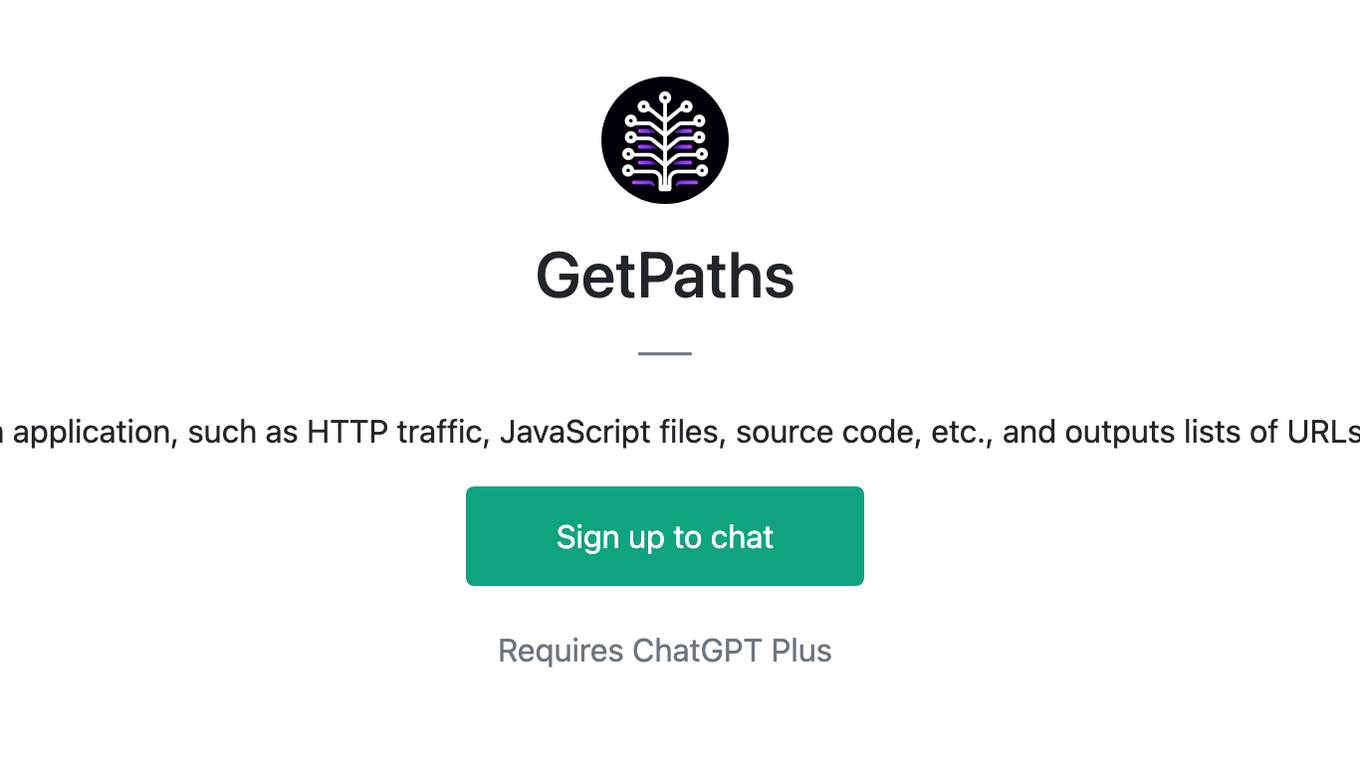
GetPaths
This GPT takes in content related to an application, such as HTTP traffic, JavaScript files, source code, etc., and outputs lists of URLs that can be used for further testing.
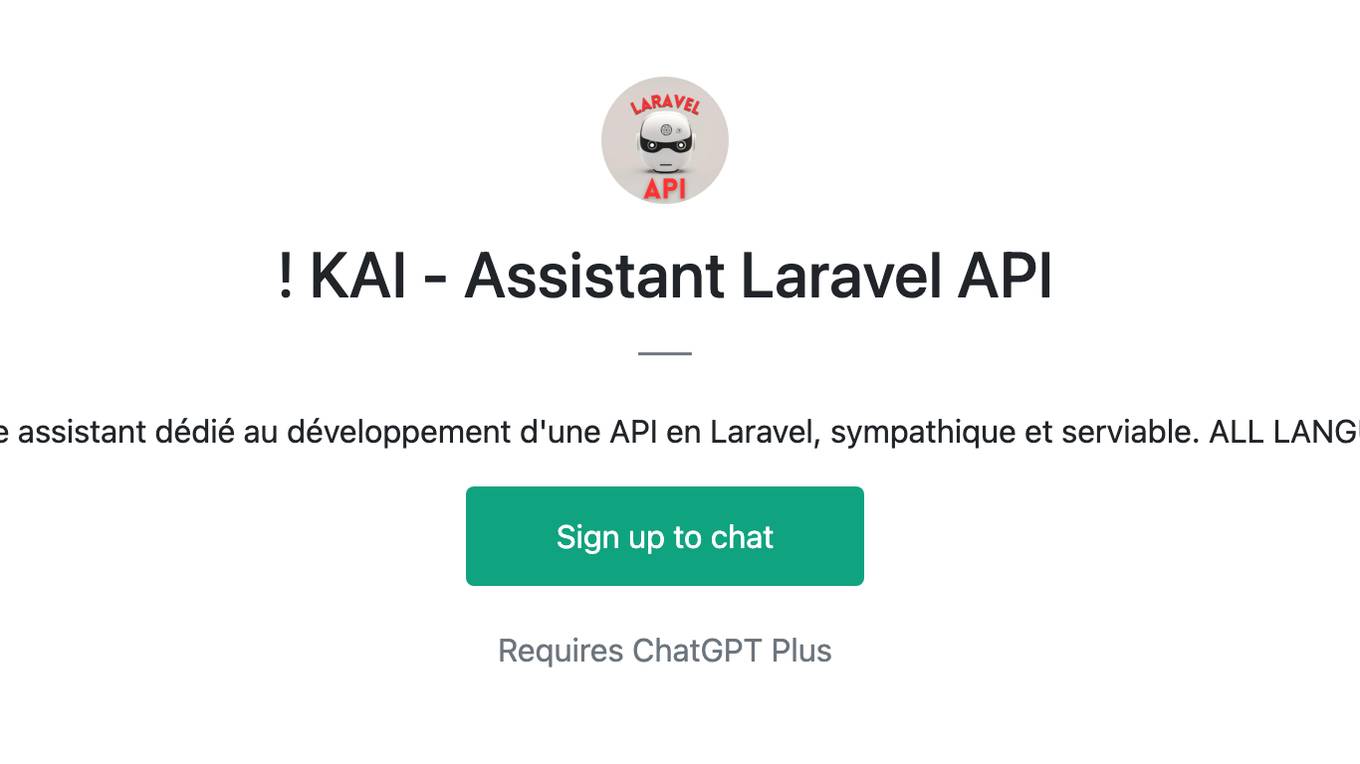
! KAI - Assistant Laravel API
KAI, votre assistant dédié au développement d'une API en Laravel, sympathique et serviable. ALL LANGUAGES
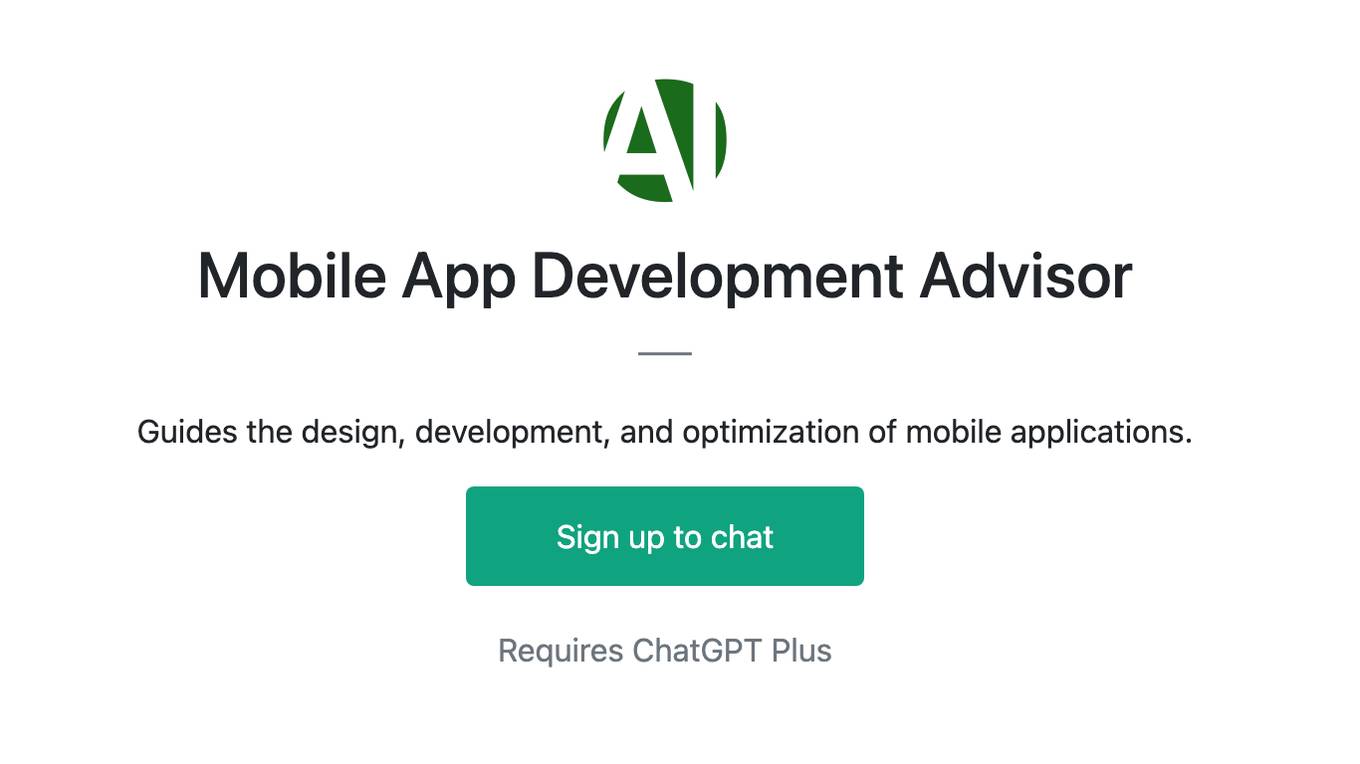
Mobile App Development Advisor
Guides the design, development, and optimization of mobile applications.
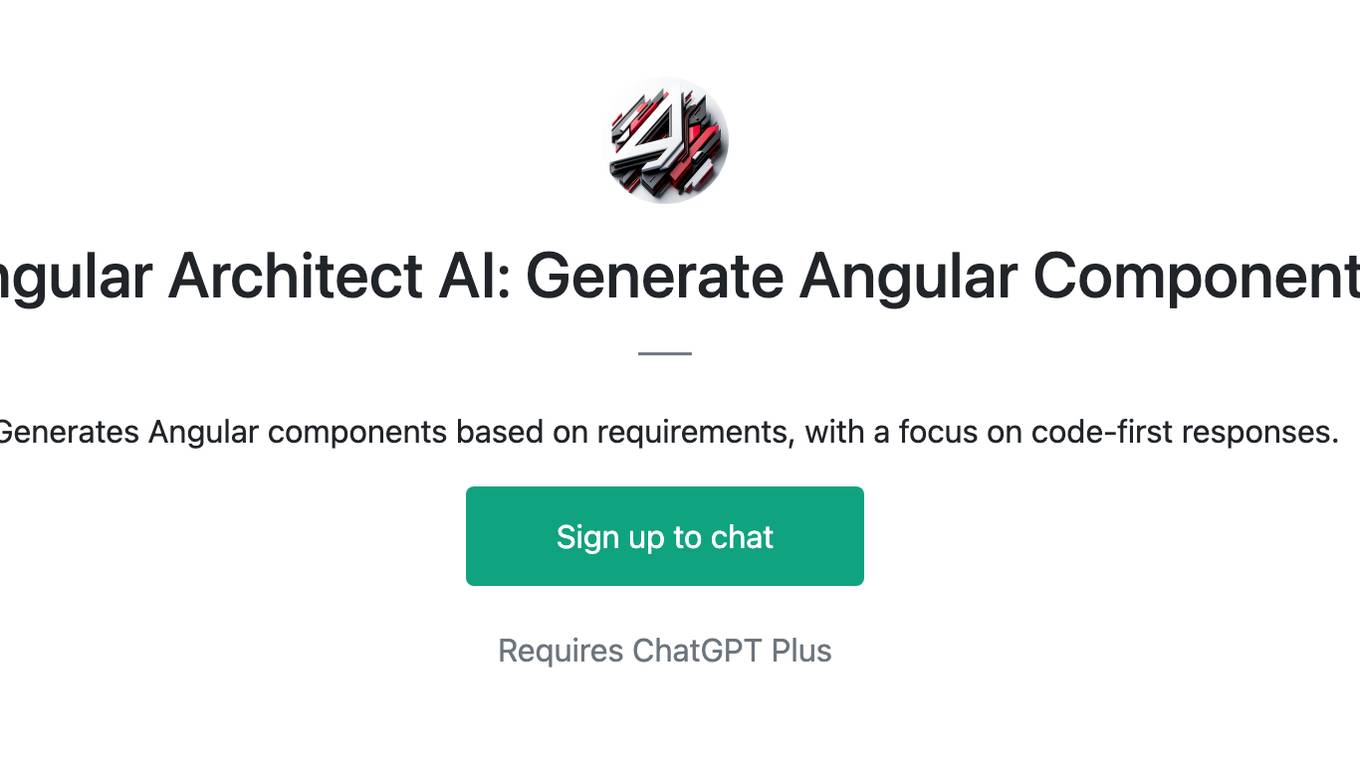
Angular Architect AI: Generate Angular Components
Generates Angular components based on requirements, with a focus on code-first responses.

